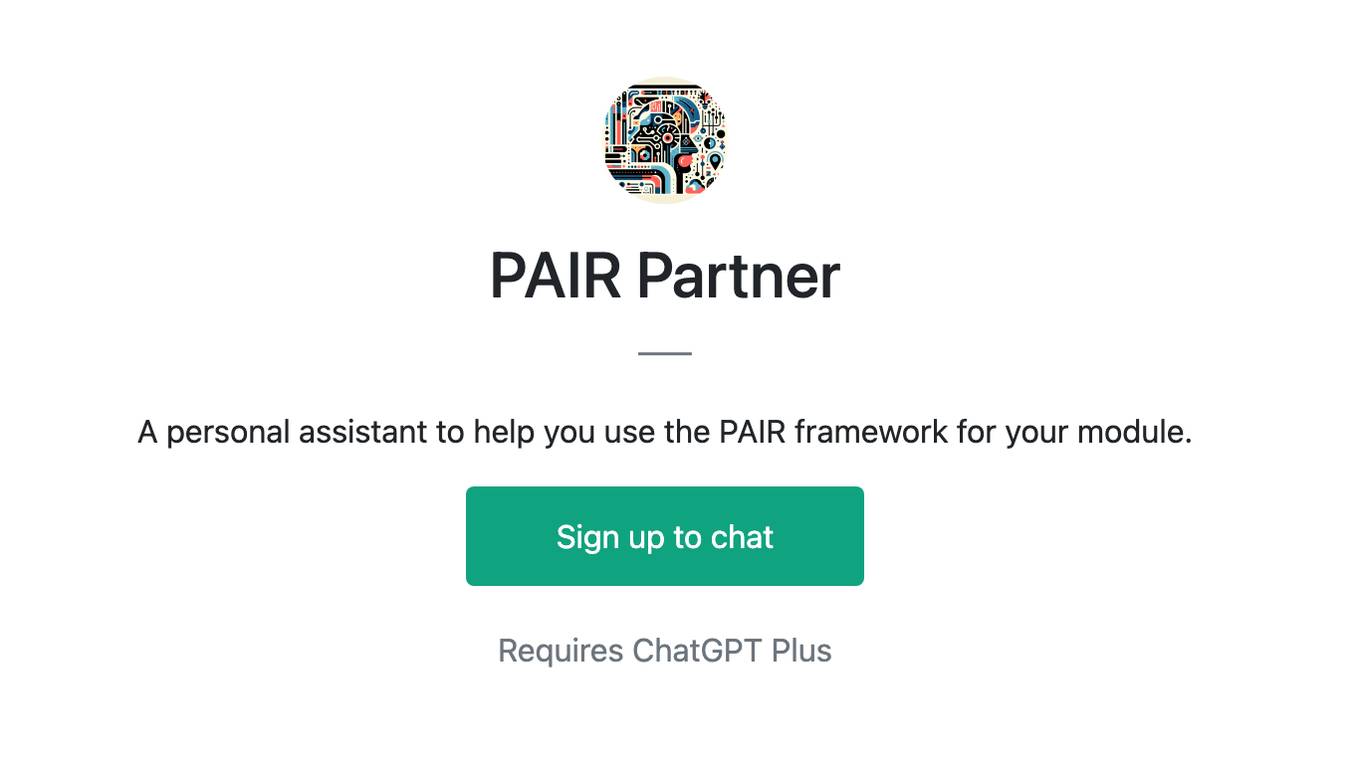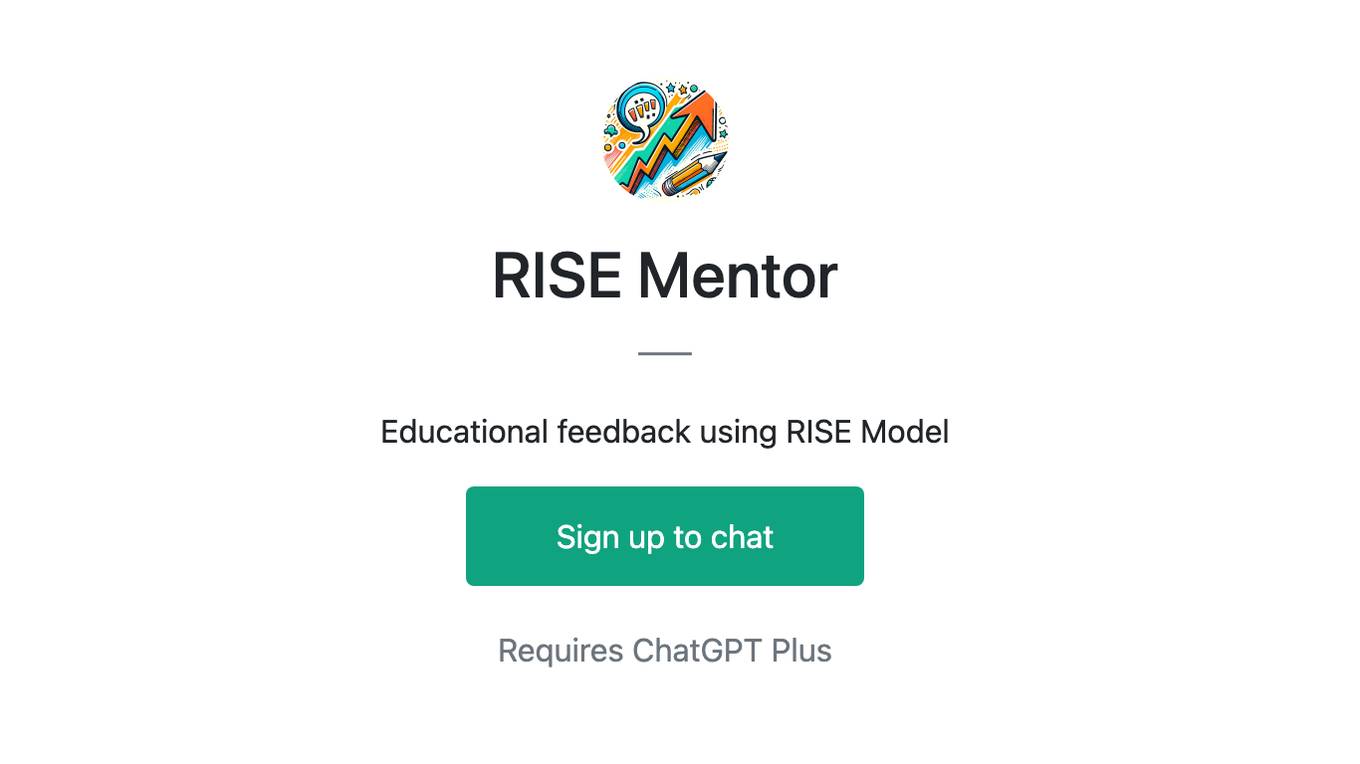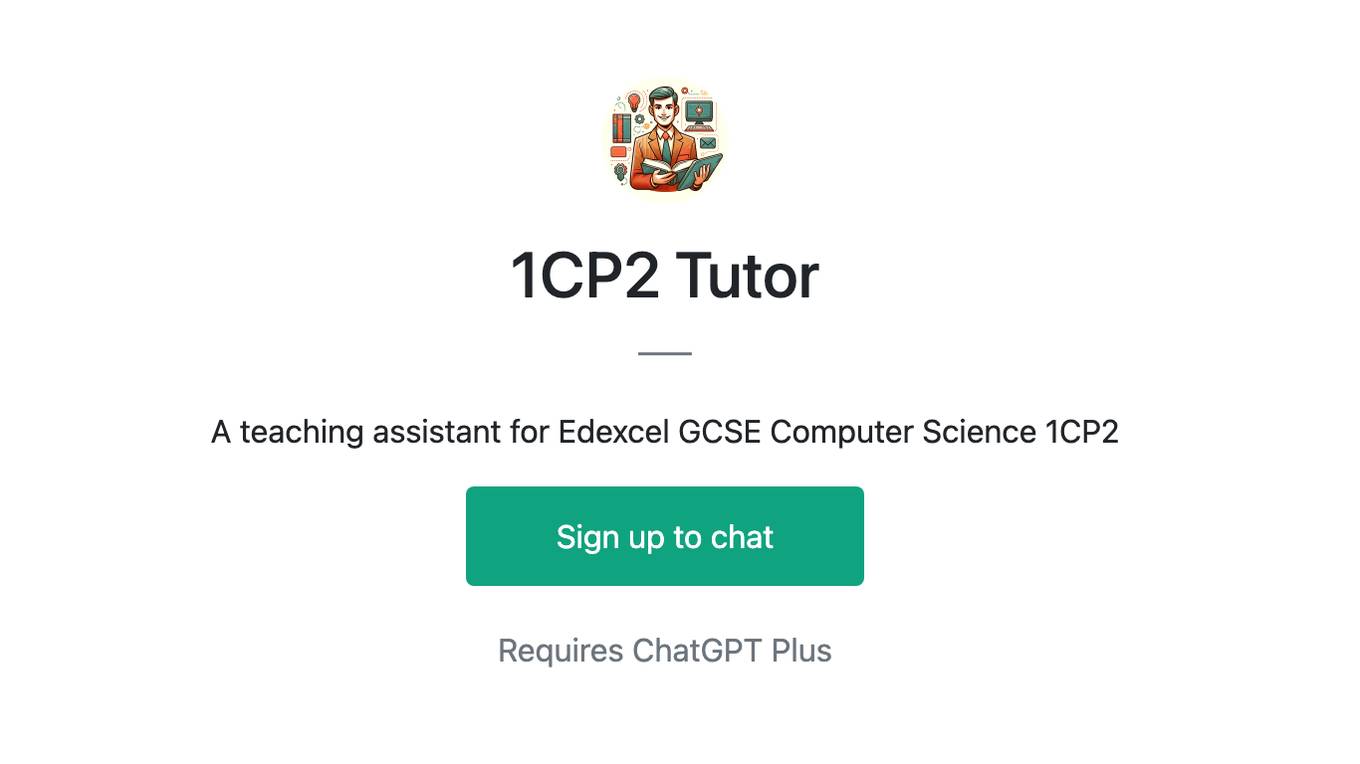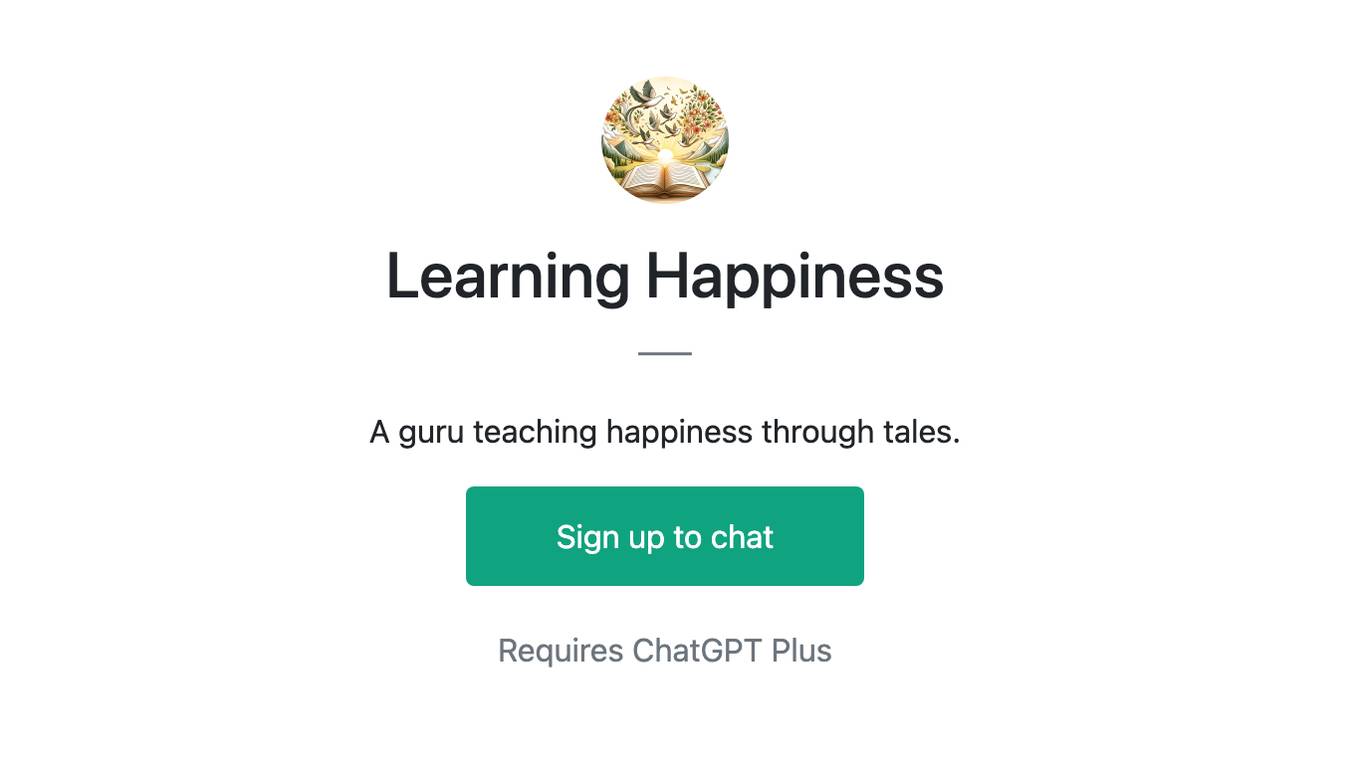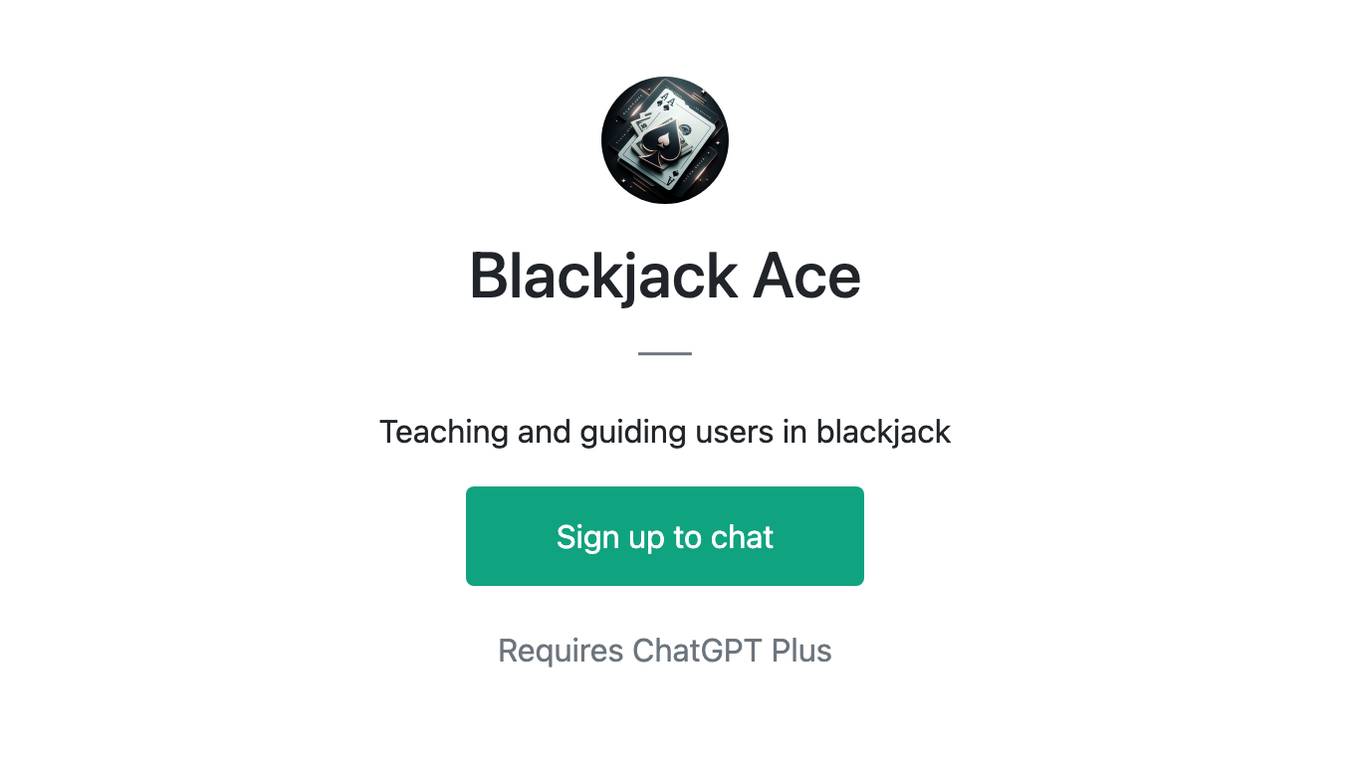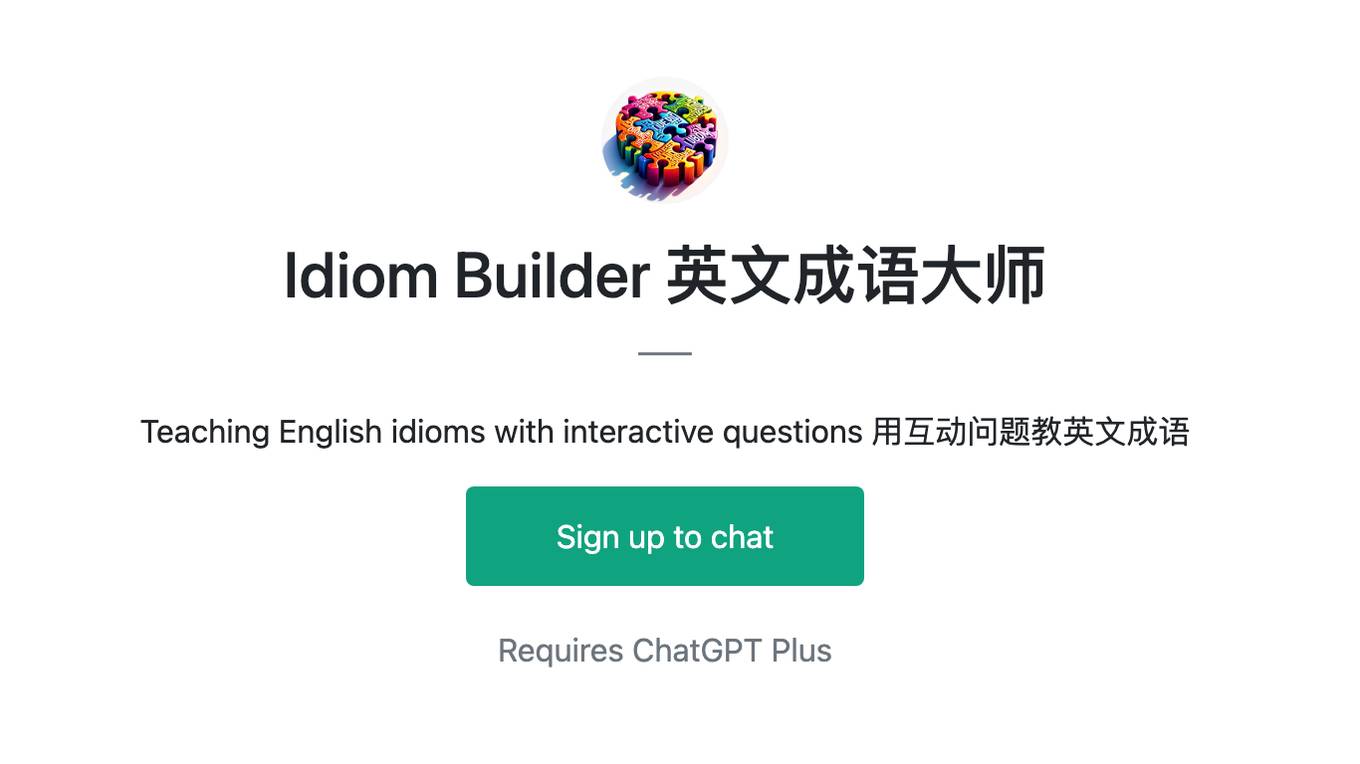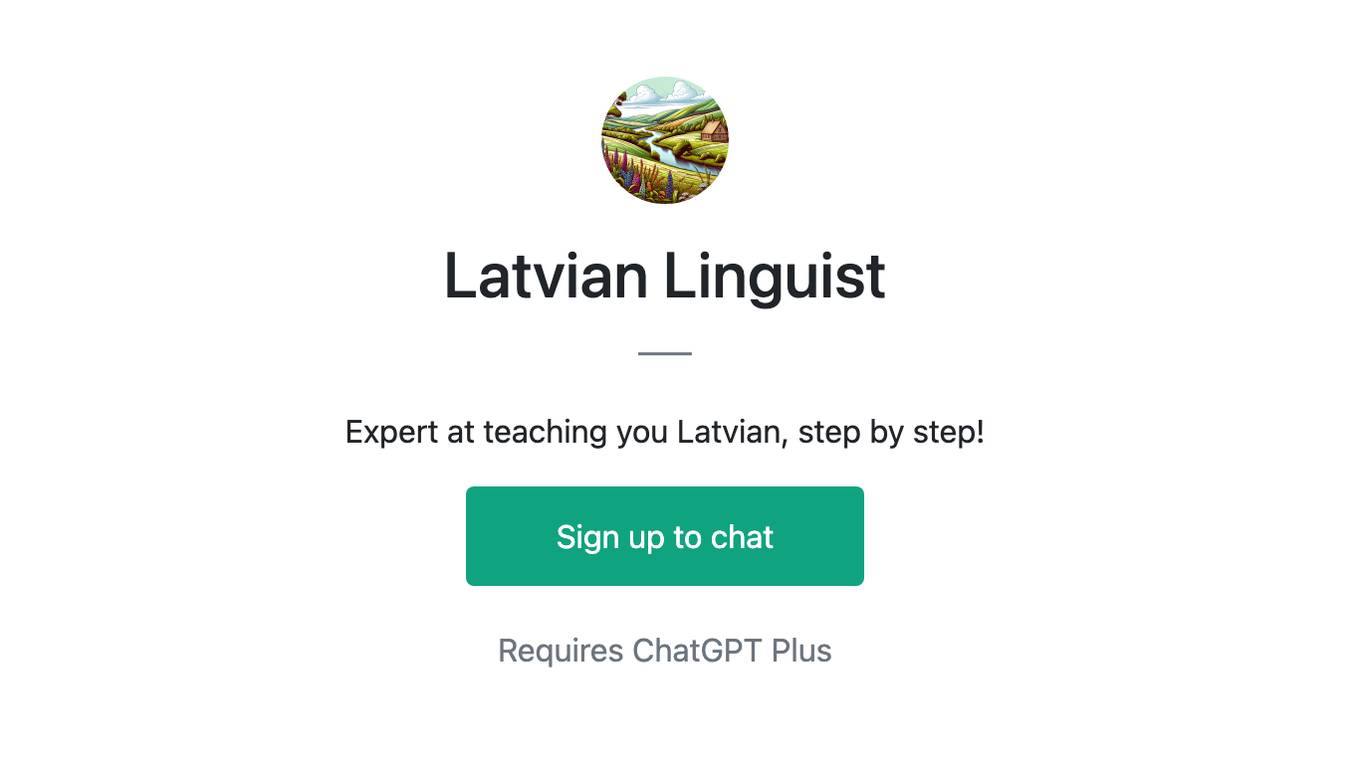Best AI tools for< Improve Teaching >
20 - AI tool Sites

Coschool
Coschool is an AI-powered assistant designed to help teachers save time and improve their teaching. With Coschool, teachers can access a variety of tools and resources to help them plan lessons, create assignments, grade papers, and communicate with students and parents. Coschool also provides teachers with personalized recommendations and support to help them improve their teaching skills.
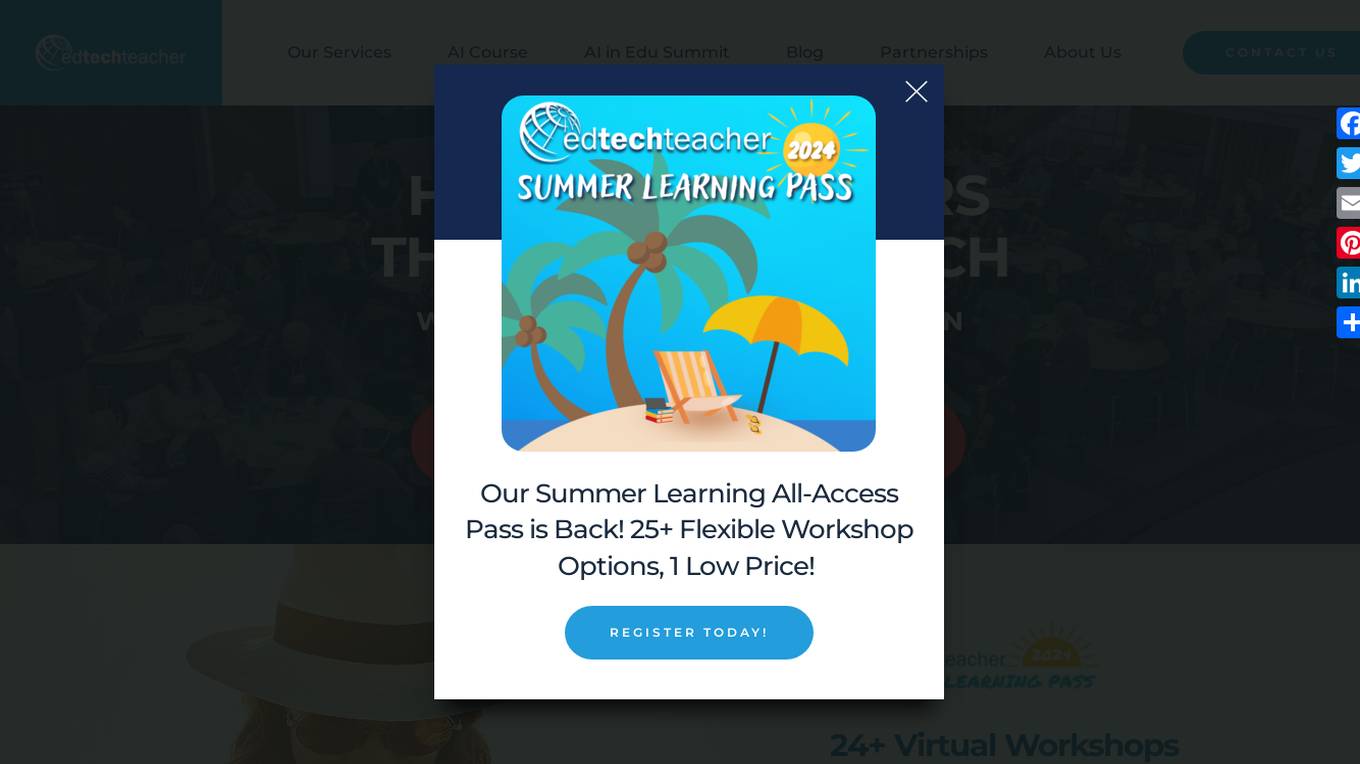
EdTechTeacher
EdTechTeacher is an innovative AI tool designed to support educators and schools in integrating artificial intelligence into teaching and learning. The platform offers professional development services, workshops, coaching, and resources to help educators enhance their teaching practices with AI technology. EdTechTeacher also collaborates with edtech businesses and organizations to promote equity and inclusion in education through research, partnerships, and software audits.
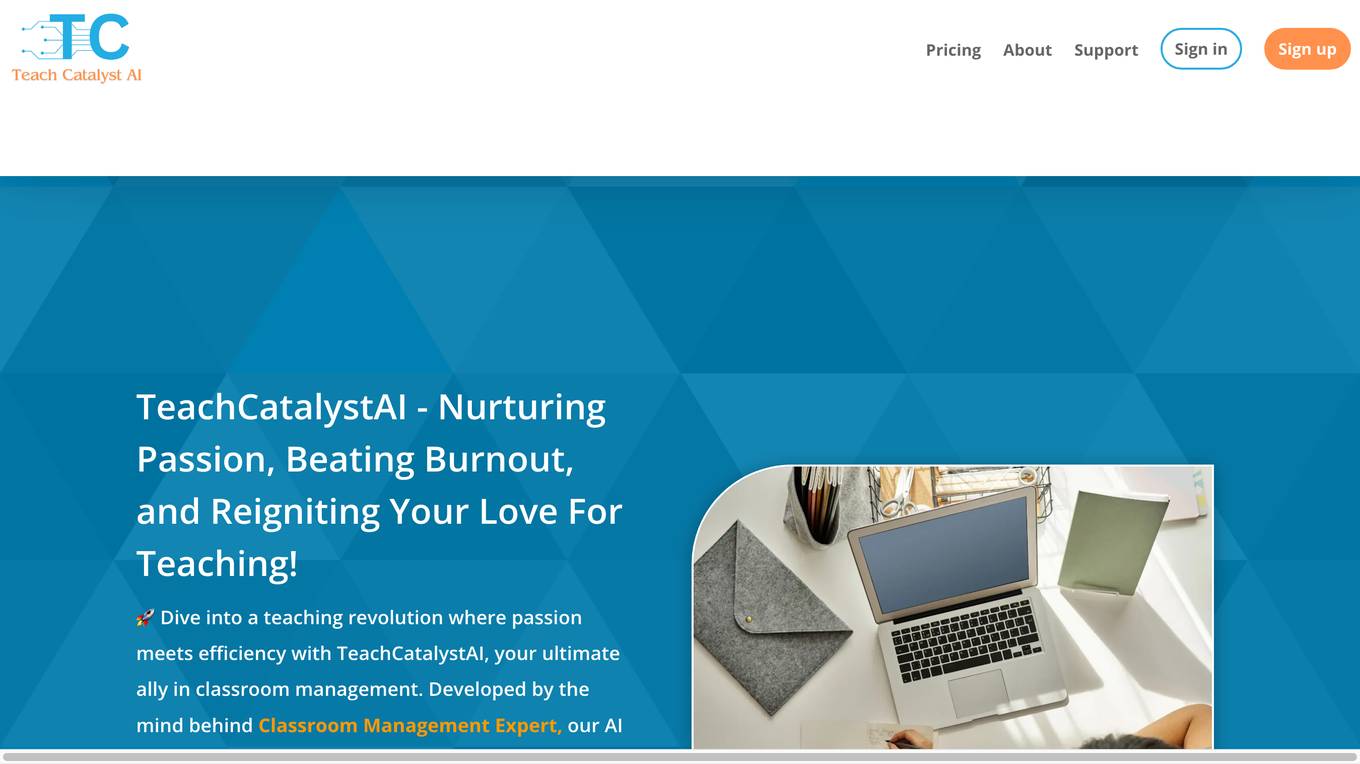
Teach Catalyst AI
Teach Catalyst AI is an AI-powered teaching assistant designed to make teachers' work easier and more efficient. It offers a wide range of tools and templates to help teachers with tasks such as creating lesson plans, worksheets, quizzes, and student reports. Teach Catalyst AI also provides insights into teaching practices and helps teachers improve their classroom management skills. With Teach Catalyst AI, teachers can save time, reduce stress, and focus on what matters most: teaching.
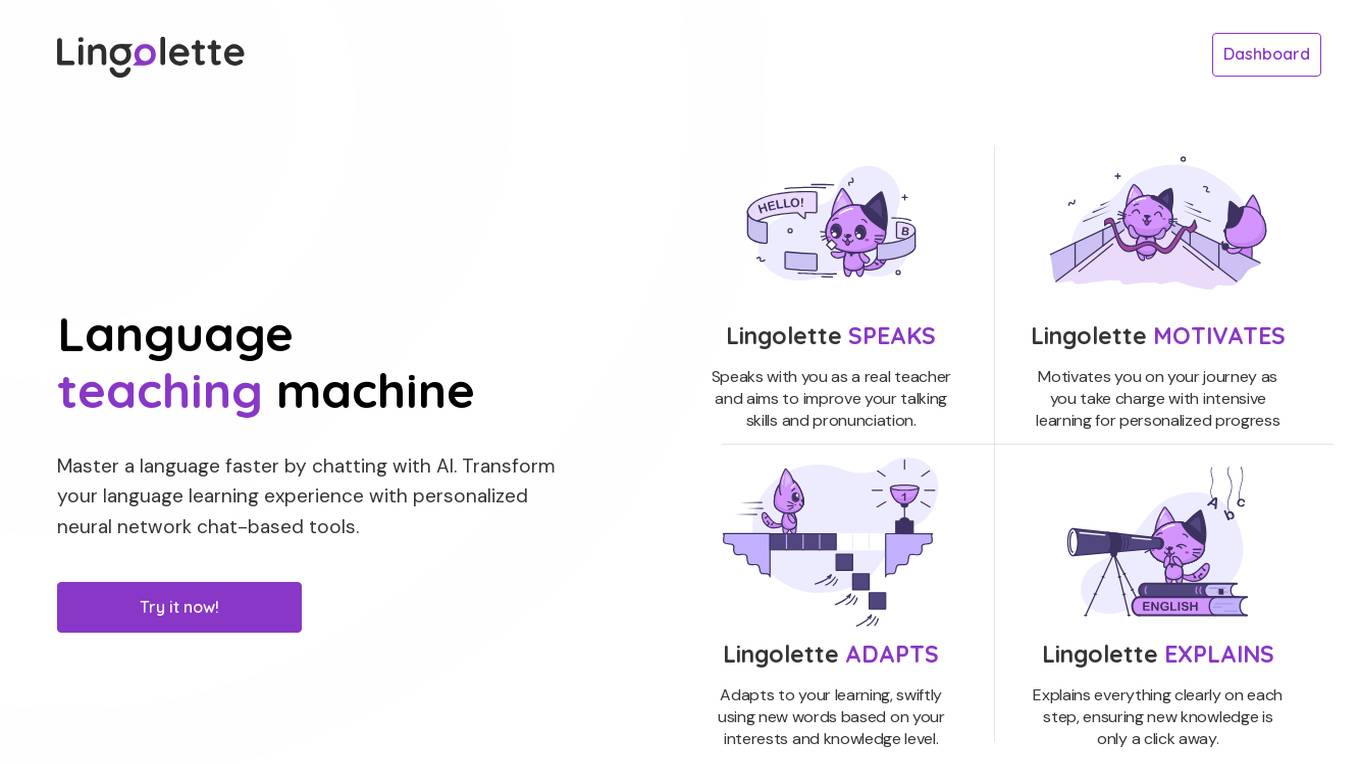
Lingolette
Lingolette is an AI language teaching machine that helps users master a language faster through personalized neural network chat-based tools. It speaks with users like a real teacher, motivates them on their learning journey, adapts to their learning style, and explains concepts clearly. Lingolette aims to enhance users' talking skills, pronunciation, and overall language learning experience.

Dr. Amit Ray
Dr. Amit Ray is famous for his teachings on peace, compassion, meditation, non- violence, 114 chakras, compassionate AI, mindfulness, leadership and creativity. He is also famous for his contribution in the field of quantum computing and artificial intelligence. He has spent several years in high Himalaya in deep silent meditation. He is one of the rare meditation master, who has fully experienced the higher consciousness and fully conversant with the ancient meditation literature as well as modern high end researches. He often remains engrossed in deep meditation in the dense forests, caves, and snow-covered peaks of the Himalayas. At the same time he always keeps a watchful compassionate gaze for the well-being of the humanity. His compassion and meditation teachings transcends the limitations of worldly distinctions such as religion, country, culture, caste, class, color, history, and geography.
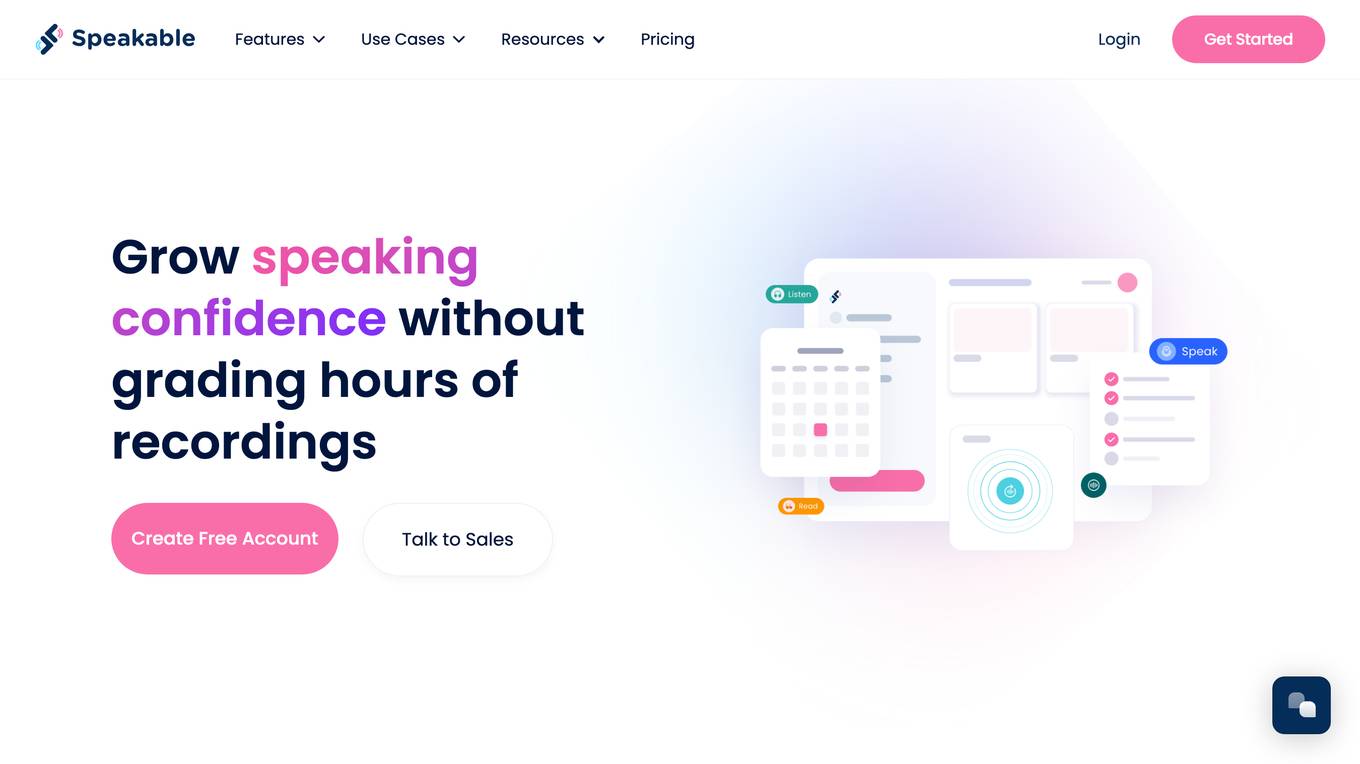
Speakable
Speakable is an AI-powered speaking practice tool designed for students to enhance their language skills through AI-assisted activities. It provides instant feedback on speaking and writing exercises, making practice more engaging and efficient. The platform offers a variety of language tasks at different proficiency levels, helping students improve their oral proficiency and writing skills. Speakable is loved by teachers for its ability to empower educators to deliver targeted support and track student progress effectively.
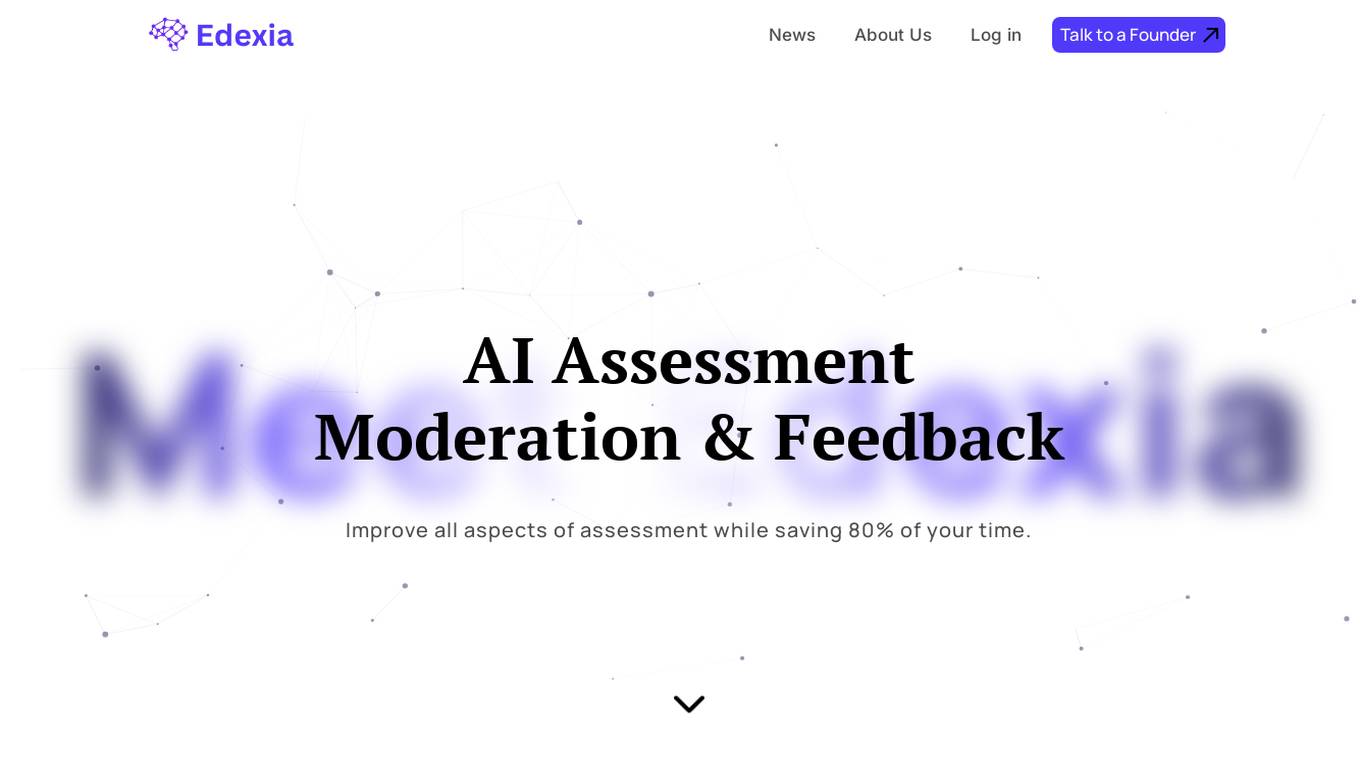
Edexia
Edexia is an AI-powered platform designed to revolutionize the assessment process in education. It offers advanced features such as AI assessment moderation and feedback, aiming to improve all aspects of assessment while saving teachers up to 80% of their time. Edexia focuses on providing better feedback, grading, insights, and efficiency, ultimately transforming the assessment experience for both teachers and students. The platform is trusted by various schools and is committed to positively impacting education by enhancing the teacher-student connection and improving student outcomes.
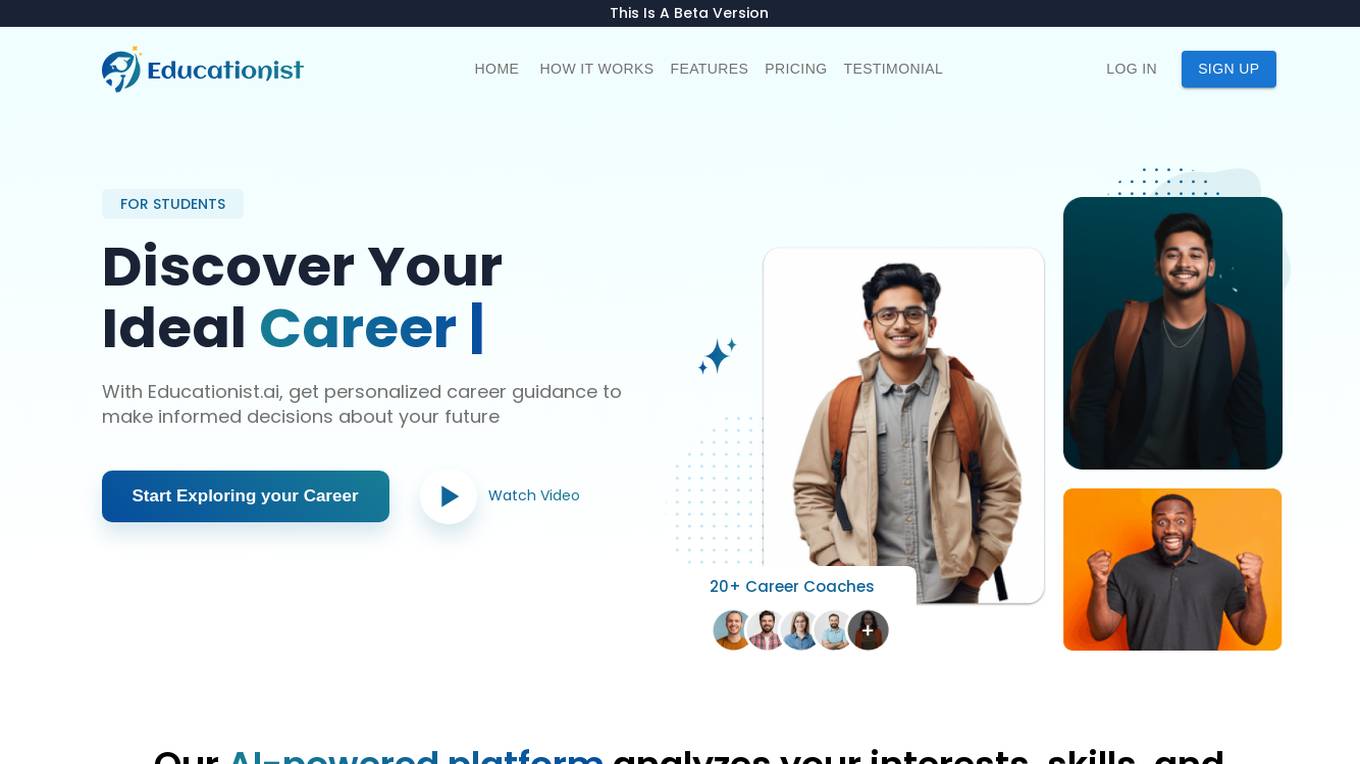
Educationist.AI
Educationist.AI is an AI-powered platform designed to enhance the field of education. It utilizes artificial intelligence to provide personalized learning experiences, optimize teaching methods, and improve student outcomes. The platform offers a wide range of educational tools and resources, catering to students, teachers, and educational institutions. With its innovative approach, Educationist.AI aims to revolutionize the way education is delivered and received.
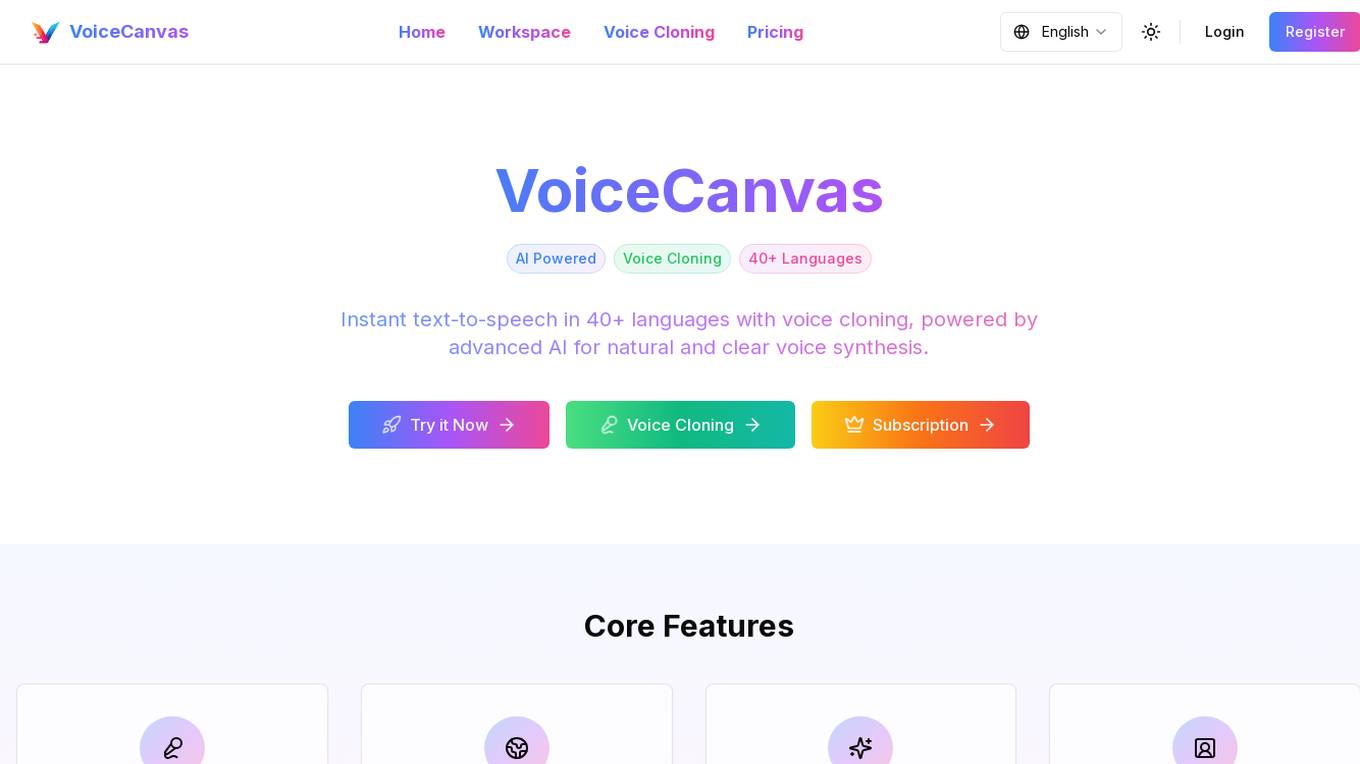
VoiceCanvas
VoiceCanvas is an advanced AI-powered multilingual voice synthesis and voice cloning platform that offers instant text-to-speech in over 40 languages. It utilizes cutting-edge AI technology to provide high-quality voice synthesis with natural intonation and rhythm, along with personalized voice cloning for more human-like AI speech. Users can upload voice samples, have AI analyze voice features, generate personalized AI voice models, input text for conversion, and apply the cloned AI voice model to generate natural voice speech. VoiceCanvas is highly praised by language learners, content creators, teachers, business owners, voice actors, and educators for its exceptional voice quality, multiple language support, and ease of use in creating voiceovers, learning materials, and podcast content.
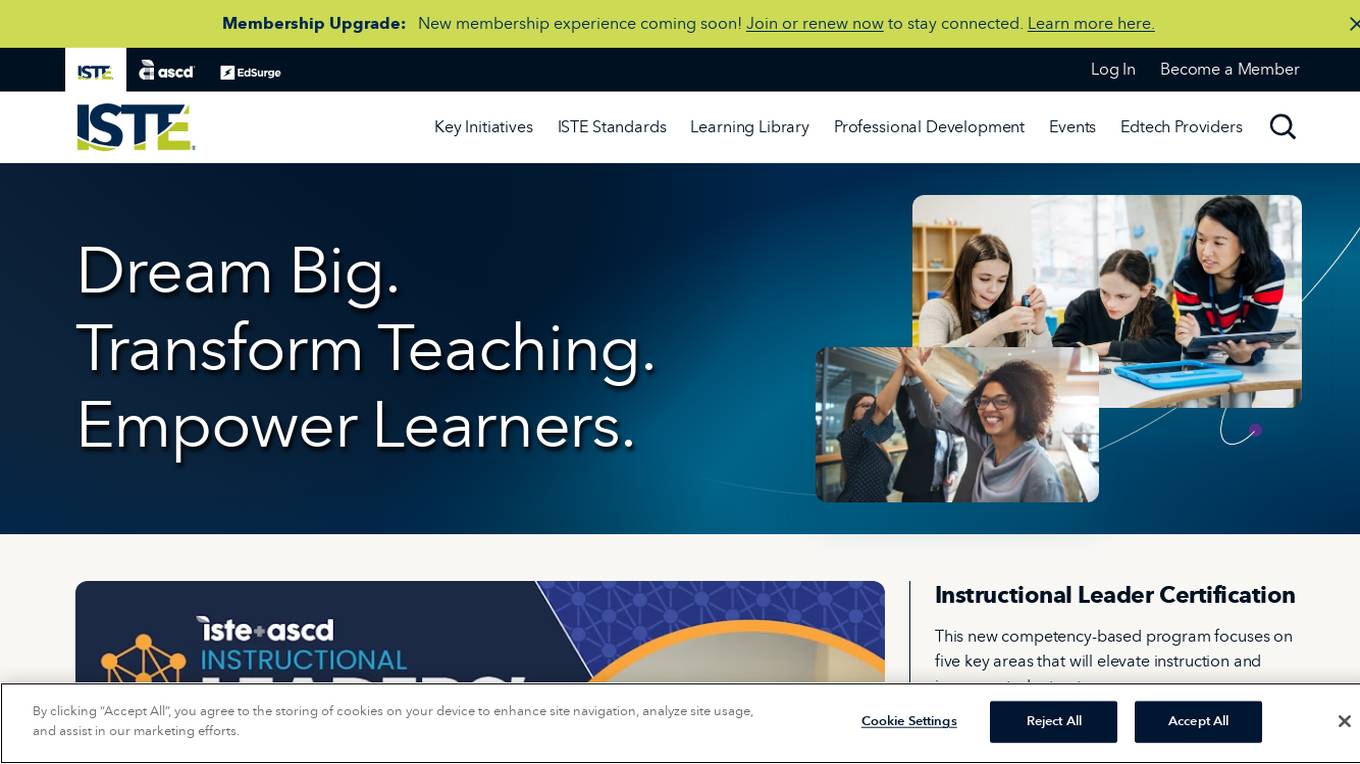
International Society for Technology in Education (ISTE)
The International Society for Technology in Education (ISTE) is a leading organization that focuses on leveraging technology to create high-impact, sustainable, and scalable learning experiences for students and educators. ISTE offers a wide range of resources, including standards, professional development, events, and a learning library, to support the integration of technology in education. The organization emphasizes pedagogy over tools and provides guidance on topics such as artificial intelligence, computational thinking, digital citizenship, and more.
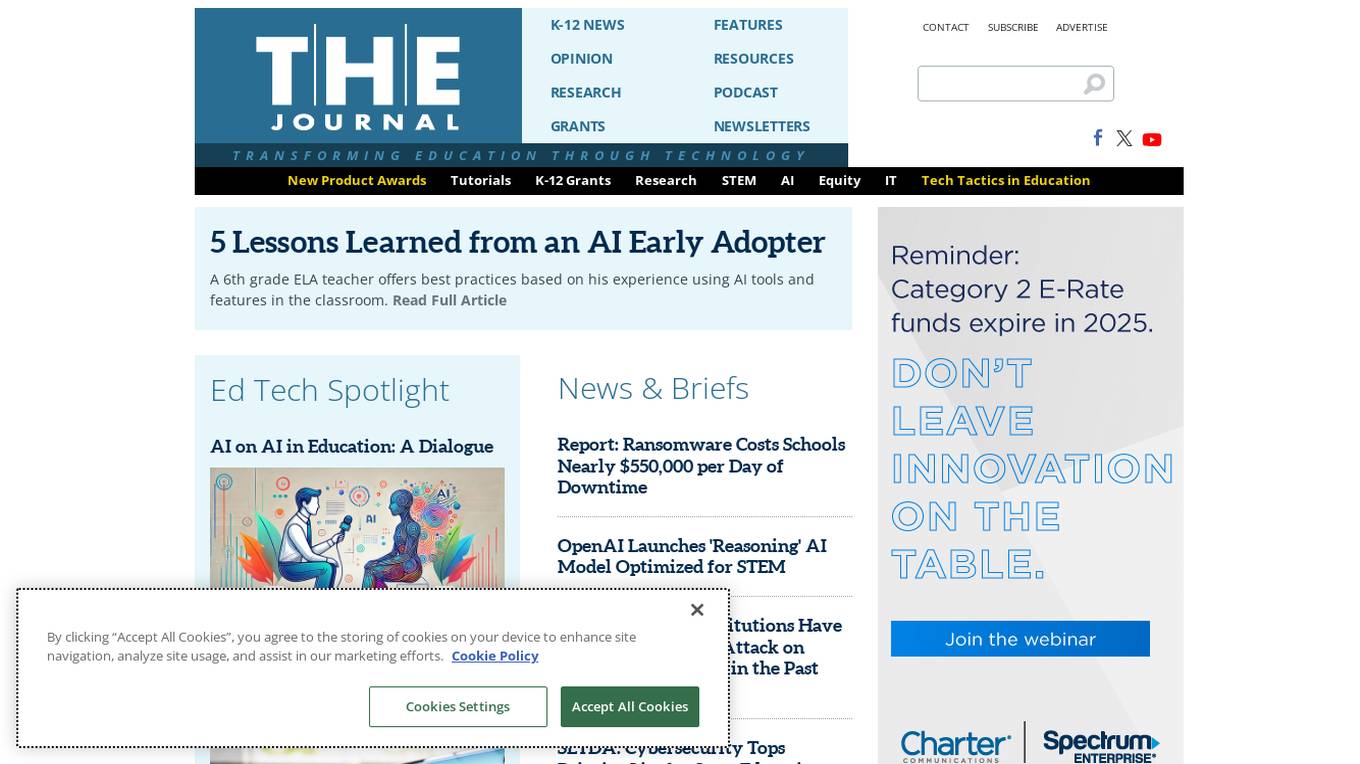
THE Journal
THE Journal is an AI-powered educational technology platform that focuses on providing the latest news, insights, and resources related to technology in education. It covers a wide range of topics such as cybersecurity, AI applications in education, STEM education, and emerging trends in educational technology. THE Journal aims to transform education through the integration of technology, offering valuable information to educators, administrators, and policymakers to enhance teaching and learning experiences.
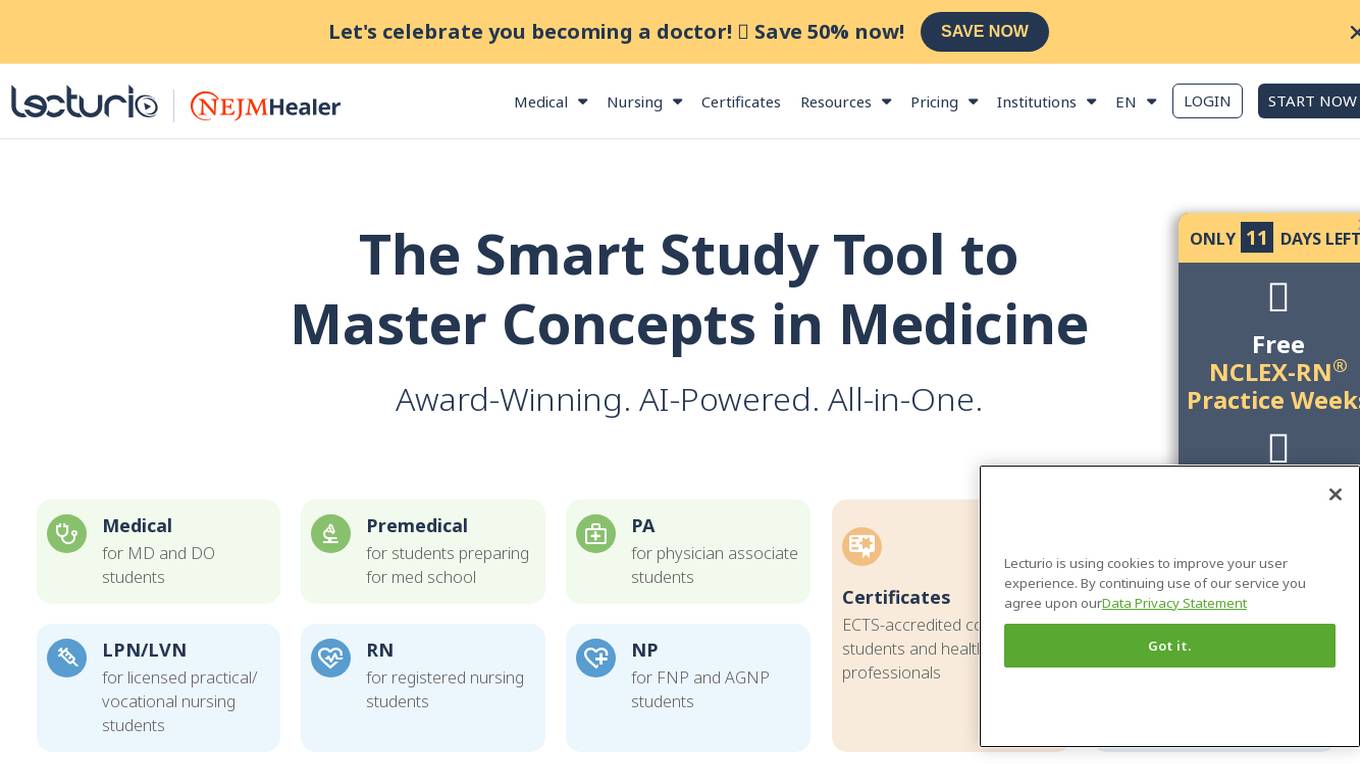
Lecturio
Lecturio is an award-winning, AI-powered, all-in-one study tool designed for medical and nursing students. It offers comprehensive learning content, personalized tutoring, and resources for various medical and nursing courses, exams, and specialties. Lecturio integrates evidence-based learning tools and strategies to enhance students' study routines and exam performance. The platform aims to help students achieve mastery of medical and nursing concepts through innovative teaching methods and advanced technology.
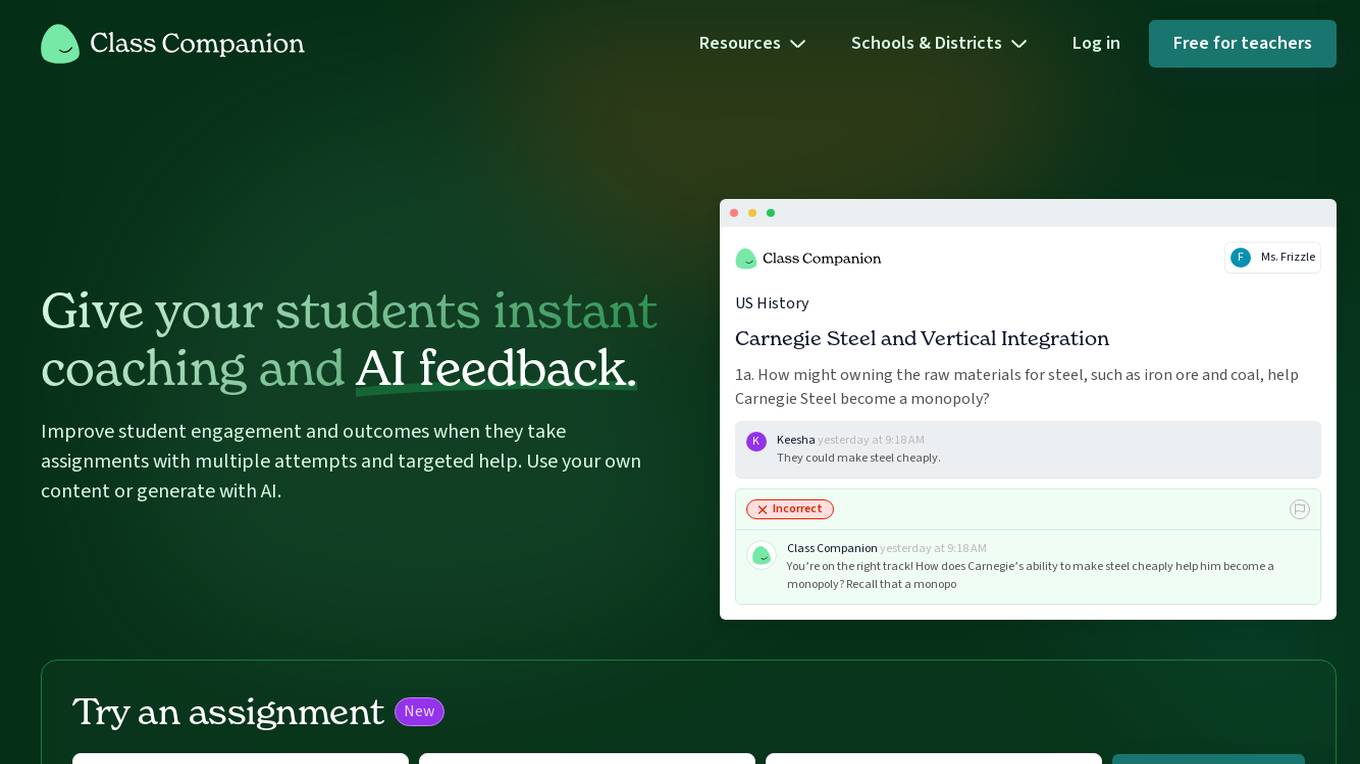
Class Companion
Class Companion is an AI teaching assistant tool designed to provide instant coaching and AI feedback to students on their assignments. It helps improve student engagement and outcomes by offering multiple attempts, targeted help, and personalized feedback. The tool supports various subjects and grades, allowing teachers to save time on manual feedback and focus on lesson planning and individual instruction. With features like AI-generated content, in-depth reporting, and customizable rubrics, Class Companion aims to enhance student learning and comprehension.
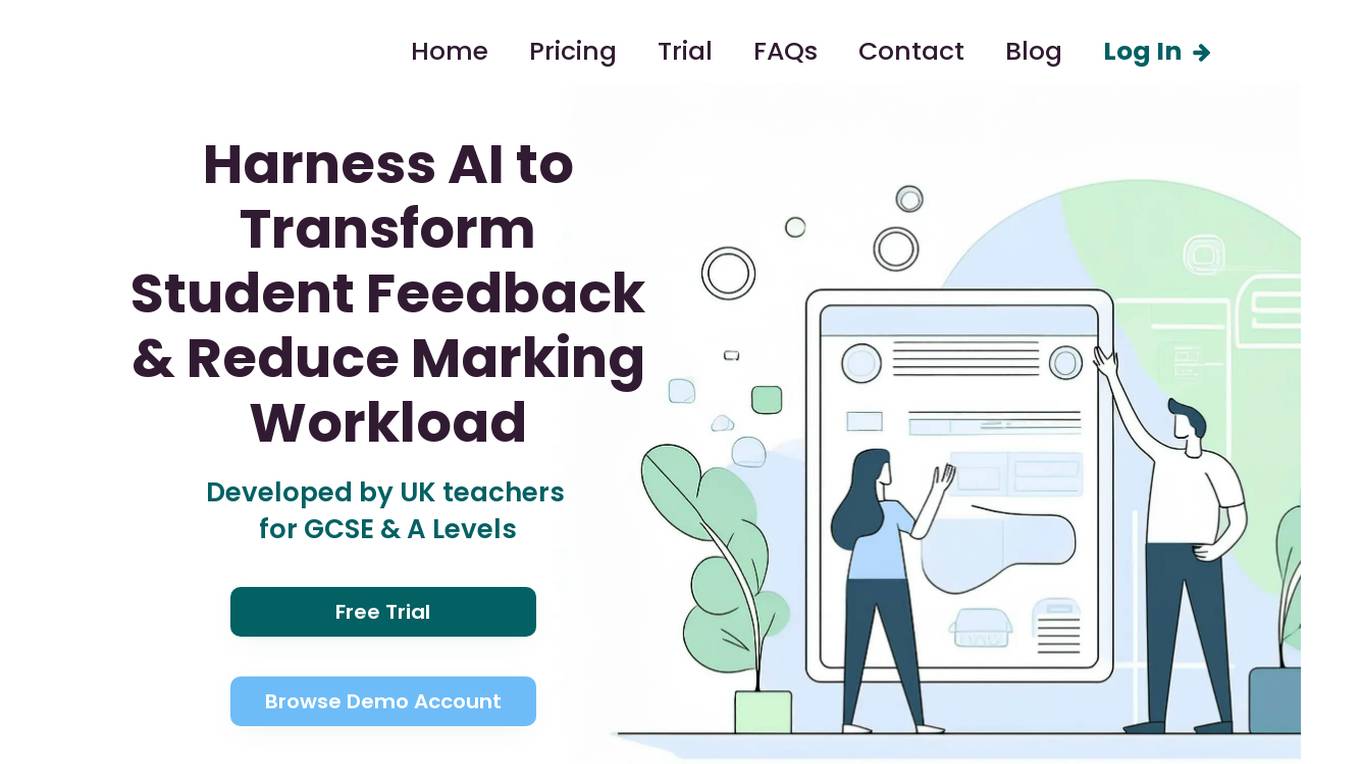
TeachEdge.ai
TeachEdge.ai is an innovative AI-powered platform designed to revolutionize the field of education. It leverages cutting-edge artificial intelligence technology to provide personalized learning experiences for students, streamline administrative tasks for educators, and enhance overall teaching effectiveness. With advanced algorithms and machine learning capabilities, TeachEdge.ai offers a comprehensive suite of tools and resources to optimize the learning process and improve educational outcomes.
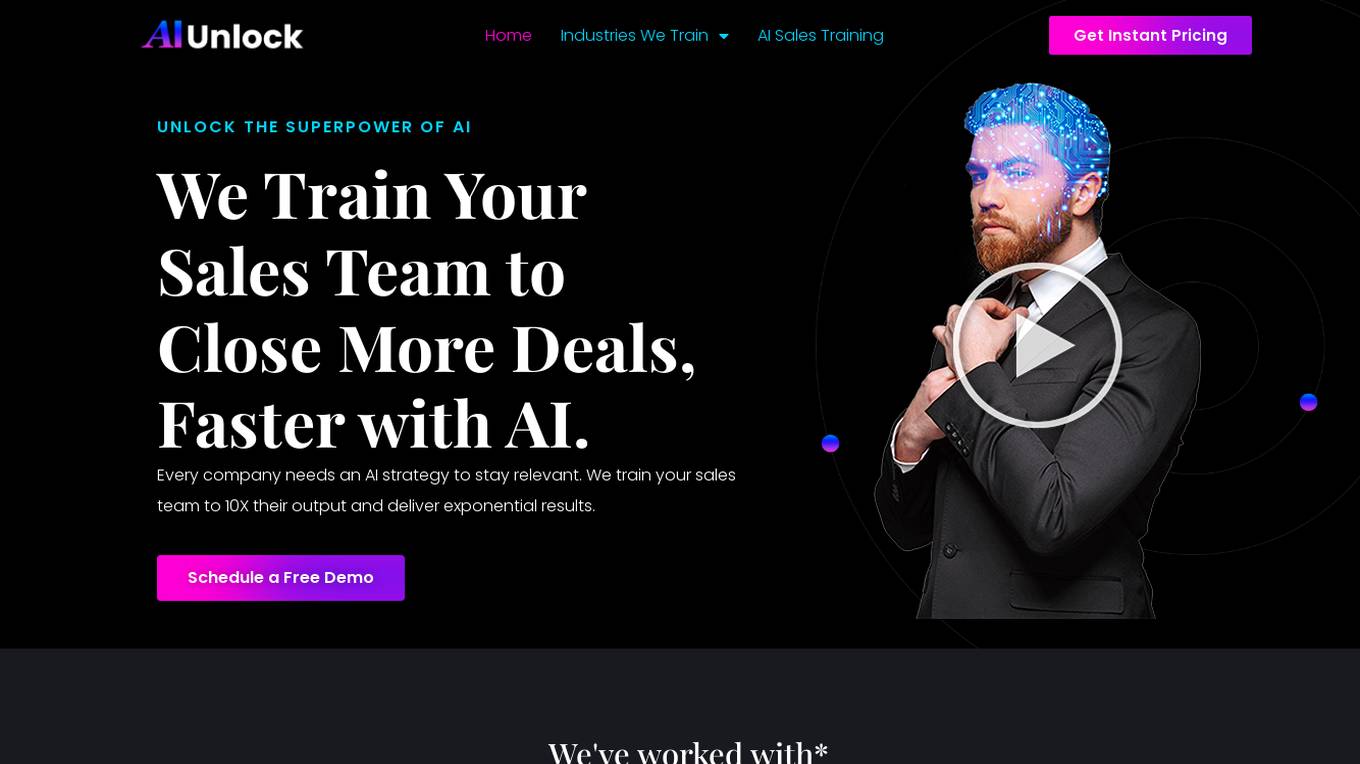
AI Unlock
AI Unlock is a sales training platform that focuses on teaching sales teams how to leverage AI to improve efficiency and productivity. The platform offers comprehensive training on AI fundamentals, sales techniques, industry knowledge, AI products, consultative selling, data literacy, communication skills, competitive analysis, ethical considerations, and continuous learning in AI. AI Unlock aims to help companies stay ahead in the fast-evolving AI industry by providing effective, fast, and low-cost AI training programs. The platform also offers on-going training, updates, and a community of AI sales professionals to support continuous learning and development.

Lingobo
Lingobo.com is a website that provides practical paths to stronger language learning by exploring evidence-based language learning strategies for diverse classrooms. It compares immersion versus bilingual education and emphasizes the importance of grammar instruction, assessment, and practice in enhancing communicative competence, fluency, and proficiency in ESL/ELL learners. The site offers insights on second-language acquisition, program models, and effective teaching methods to support language growth and proficiency.
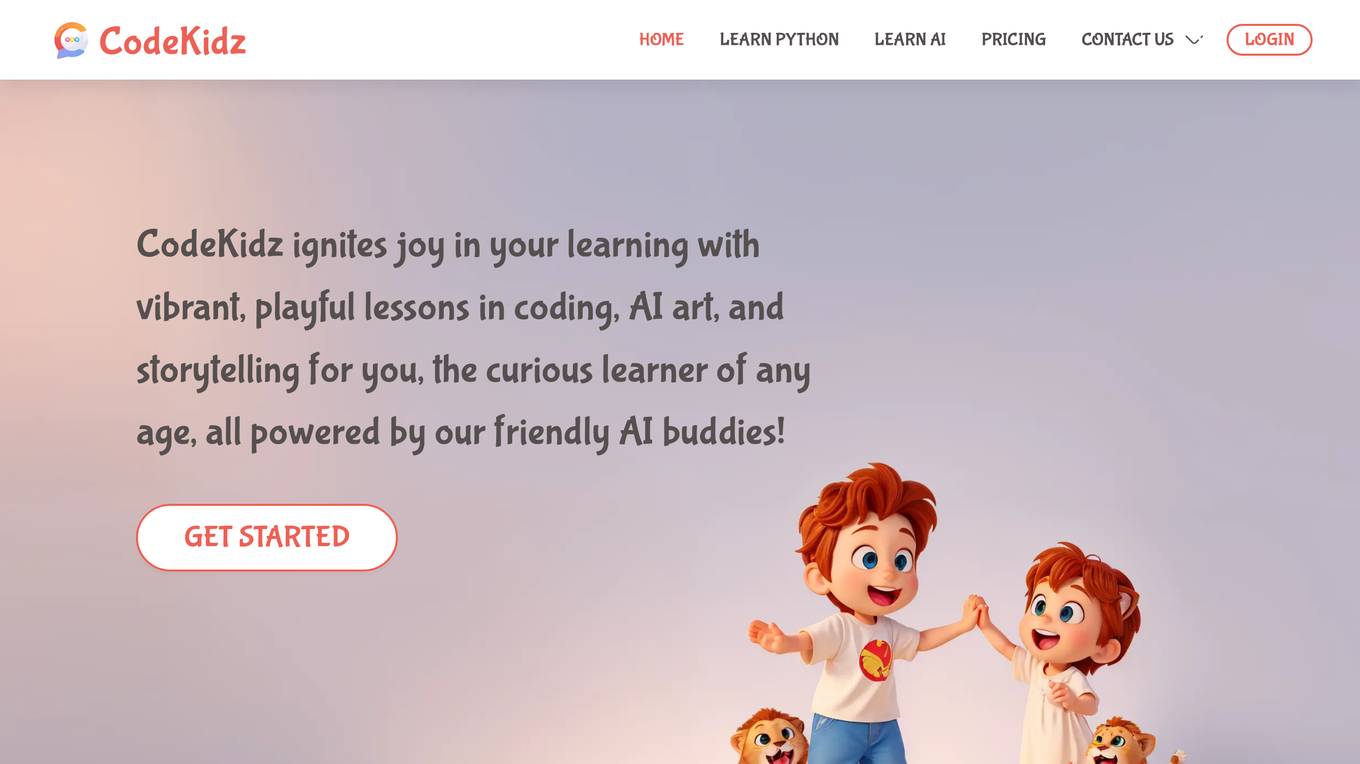
CodeKidz
CodeKidz is a personalized AI-driven learning platform designed for students, educators, and parents. It offers a lifelike, one-on-one teaching experience through AI tutors with real voice interactions. The platform provides a wide range of courses in programming, AI, art, and science to spark interest and creativity. Users can earn rewards and achievements, monitor learning progress, and interact with AI tutors for personalized learning experiences. CodeKidz aims to celebrate milestones, track academic performance, and enhance learning outcomes through detailed analytics and recommendations.
LEXICON
LEXICON is an AI-powered platform designed to enhance English learning through a combination of expert teachers and artificial intelligence. The platform offers personalized lesson programs developed by teachers to accelerate English speaking skills. By integrating AI technologies into language teaching methods, LEXICON provides a faster and more efficient learning experience. Users can benefit from specialized AI-supported exercises and receive detailed feedback on errors made during lessons. With over 10 years of experience in the software industry, LEXICON is committed to providing learners with tools tailored for language acquisition.
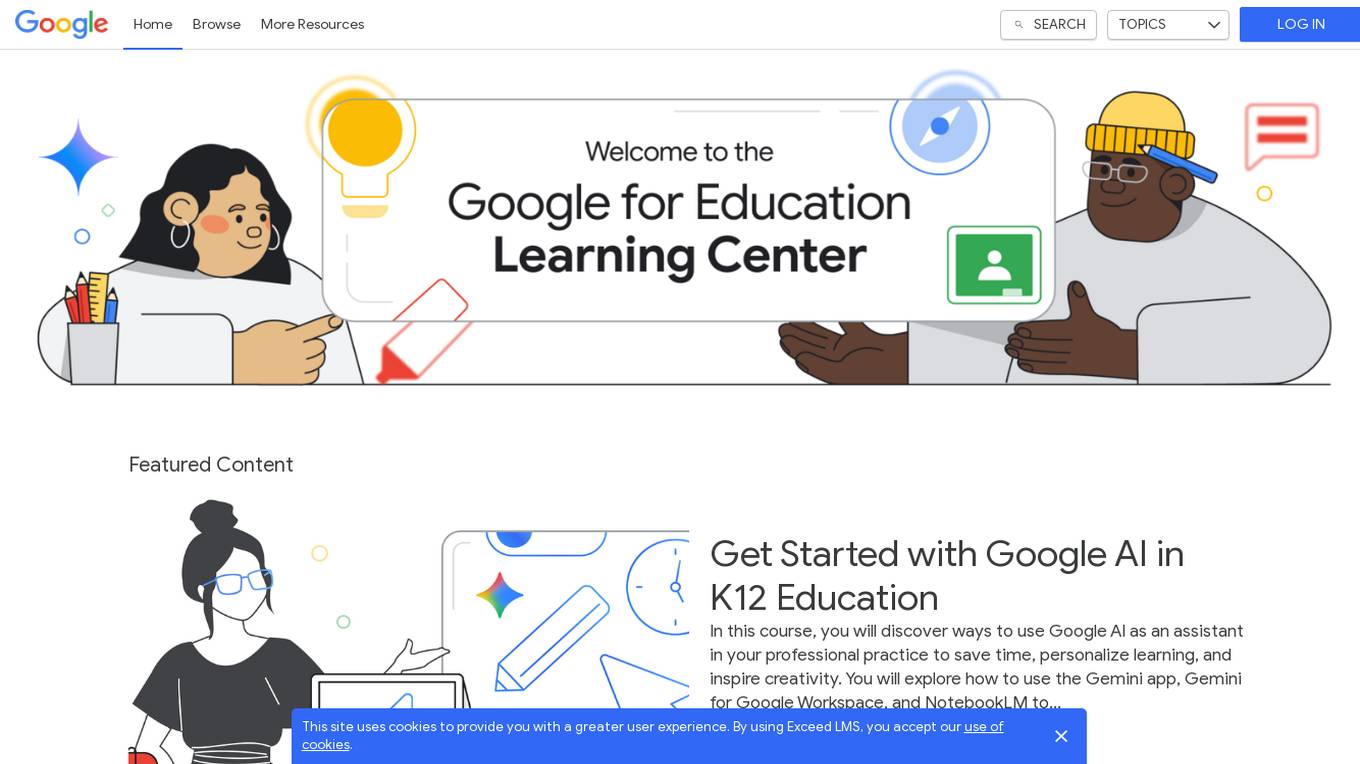
Google for Education
Google for Education is an AI-powered platform that offers a wide range of educational resources and tools to enhance teaching and learning experiences. It provides courses and training on various topics, including digital skills, computer science, online safety, and study skills. Educators can access materials to create engaging content, streamline classroom management, and personalize learning using Google AI technologies. The platform aims to empower educators and students by leveraging artificial intelligence to save time, inspire creativity, and improve educational outcomes.
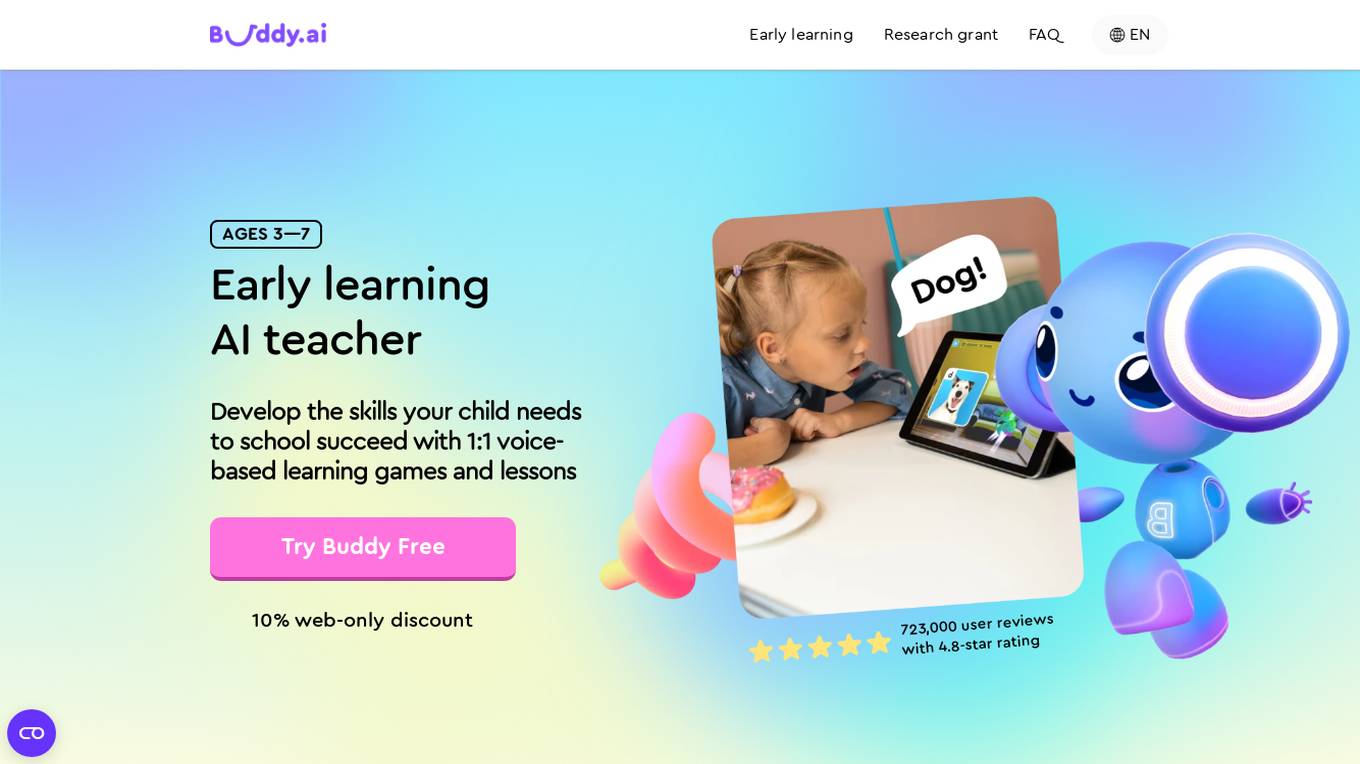
Buddy.ai
Buddy.ai is an AI-powered early learning platform designed to teach English to children aged 3-7 in a playful and interactive way. The platform offers 1:1 voice-based learning games and lessons to help children develop essential skills for school success. With a focus on fun and personalized teaching, Buddy.ai provides a safe learning space free from ads and extra charges. The platform covers a wide range of subjects, including language, literacy, math, science, art, music, and more, following the U.S. educational system. Buddy.ai uses advanced voice recognition and AI technology to engage children in interactive lessons and games, promoting learning through storytelling, spaced repetition, and total physical response.
0 - Open Source AI Tools
20 - OpenAI Gpts
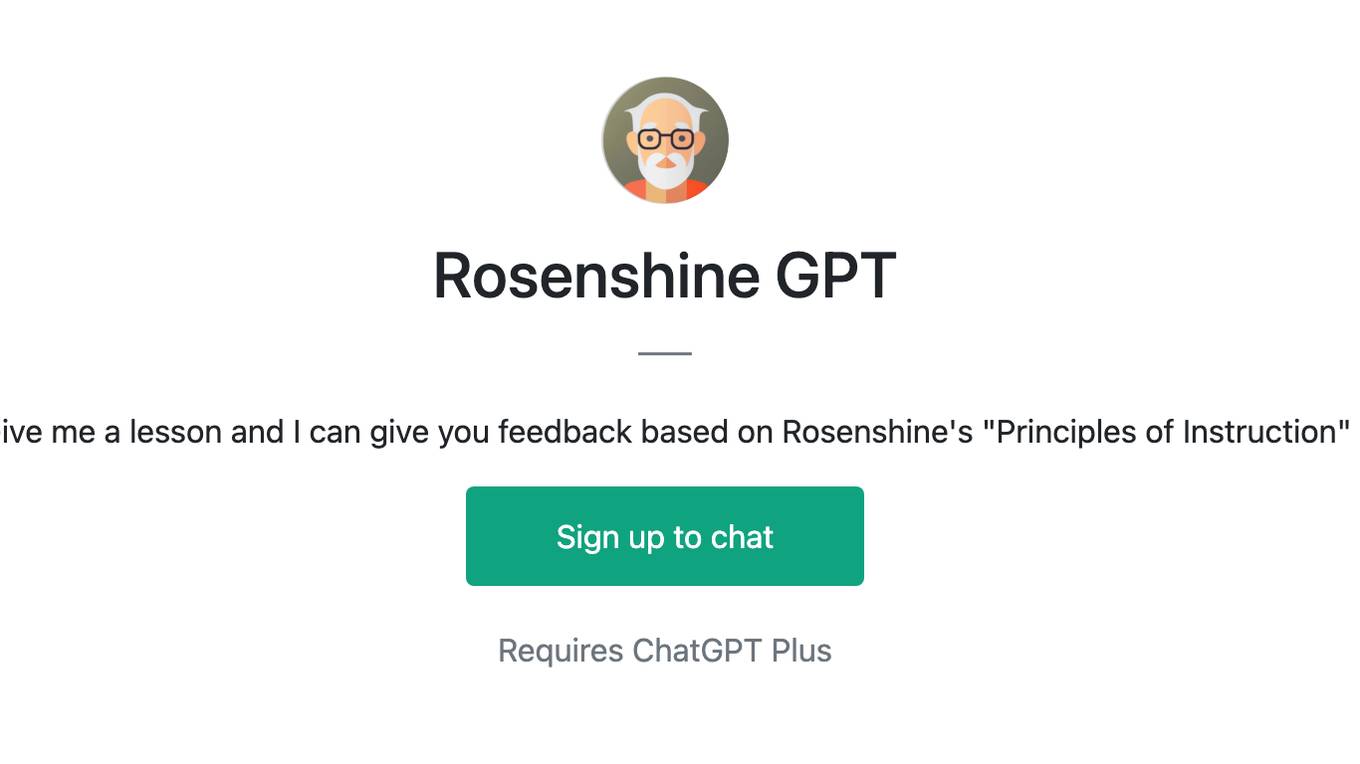
Rosenshine GPT
Give me a lesson and I can give you feedback based on Rosenshine's "Principles of Instruction"
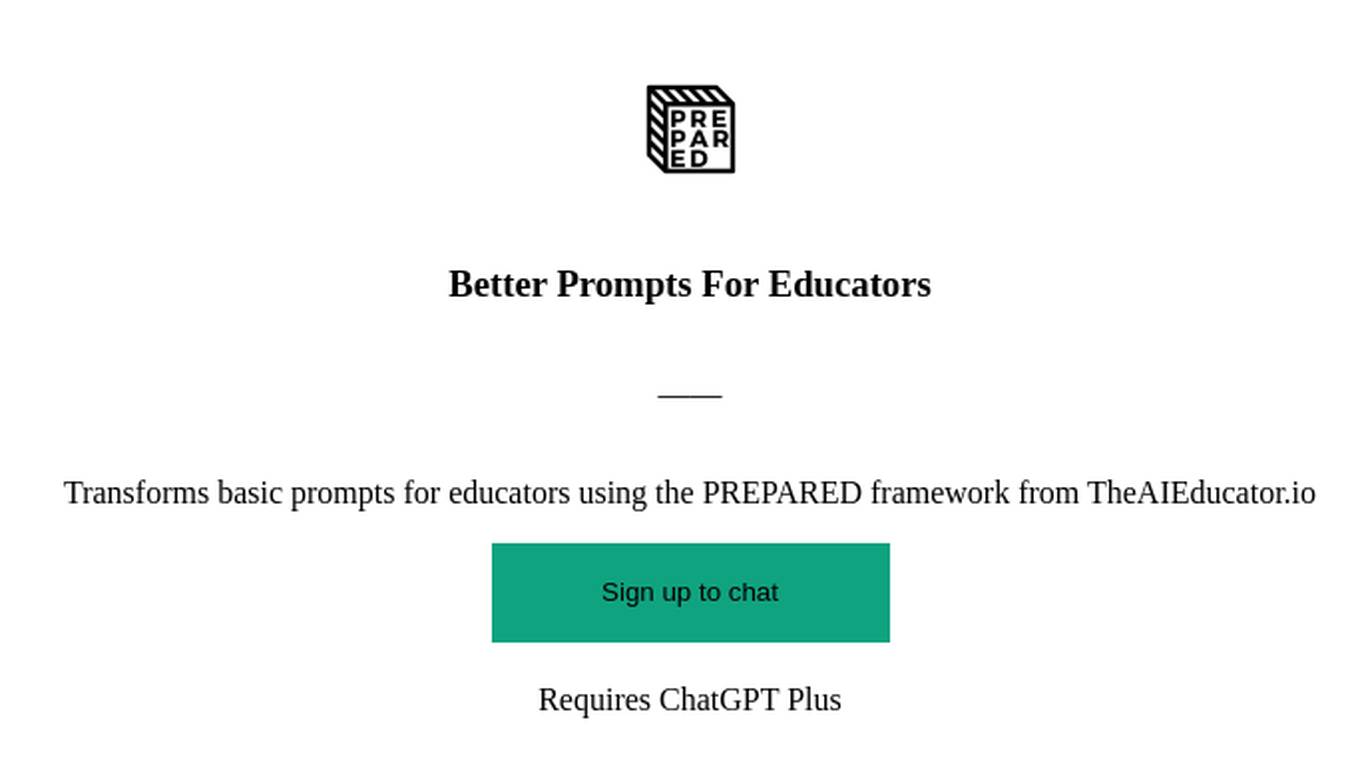
Better Prompts For Educators
Transforms basic prompts for educators using the PREPARED framework from TheAIEducator.io
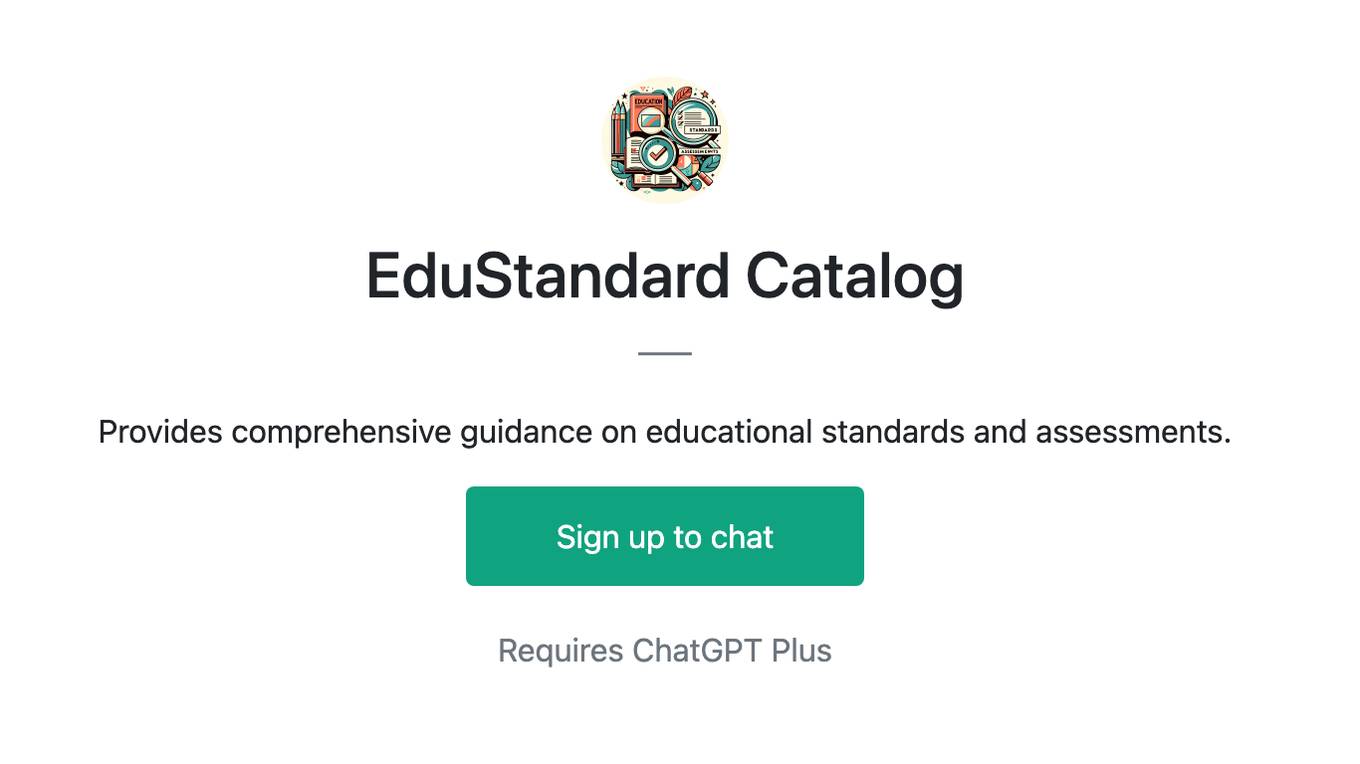
EduStandard Catalog
Provides comprehensive guidance on educational standards and assessments.
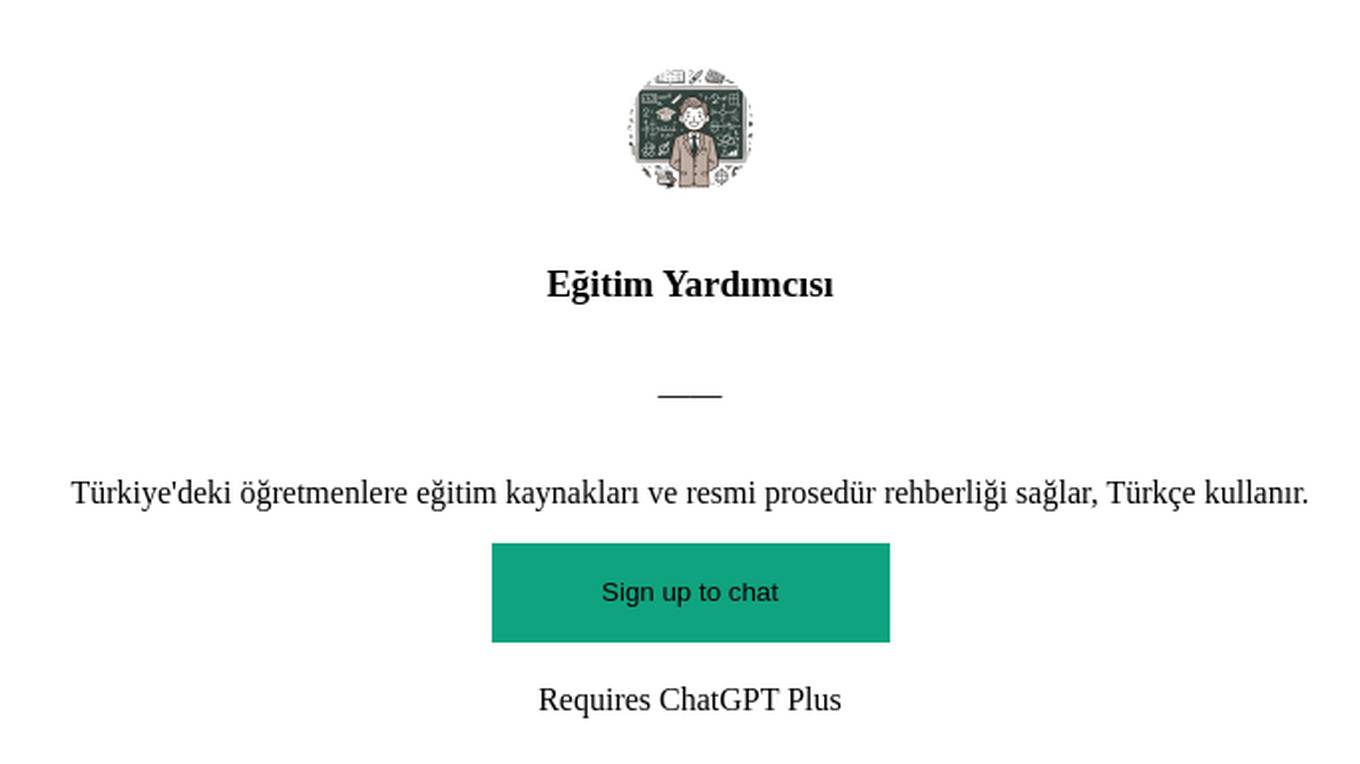
Eğitim Yardımcısı
Türkiye'deki öğretmenlere eğitim kaynakları ve resmi prosedür rehberliği sağlar, Türkçe kullanır.
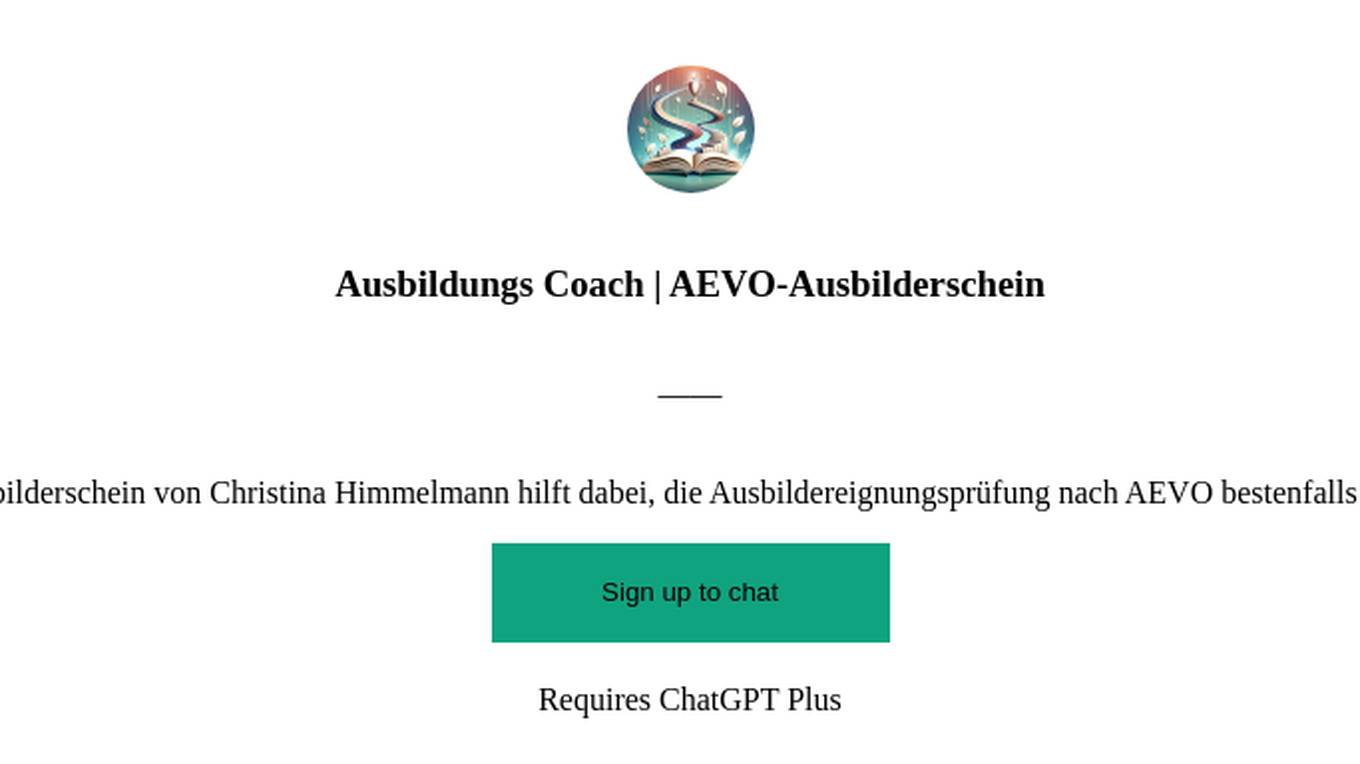
Ausbildungs Coach | AEVO-Ausbilderschein
Der Ausbildungscoach | AEVO-Ausbilderschein von Christina Himmelmann hilft dabei, die Ausbildereignungsprüfung nach AEVO bestenfalls mit Erfolg abzulegen ( ohne Gewähr )
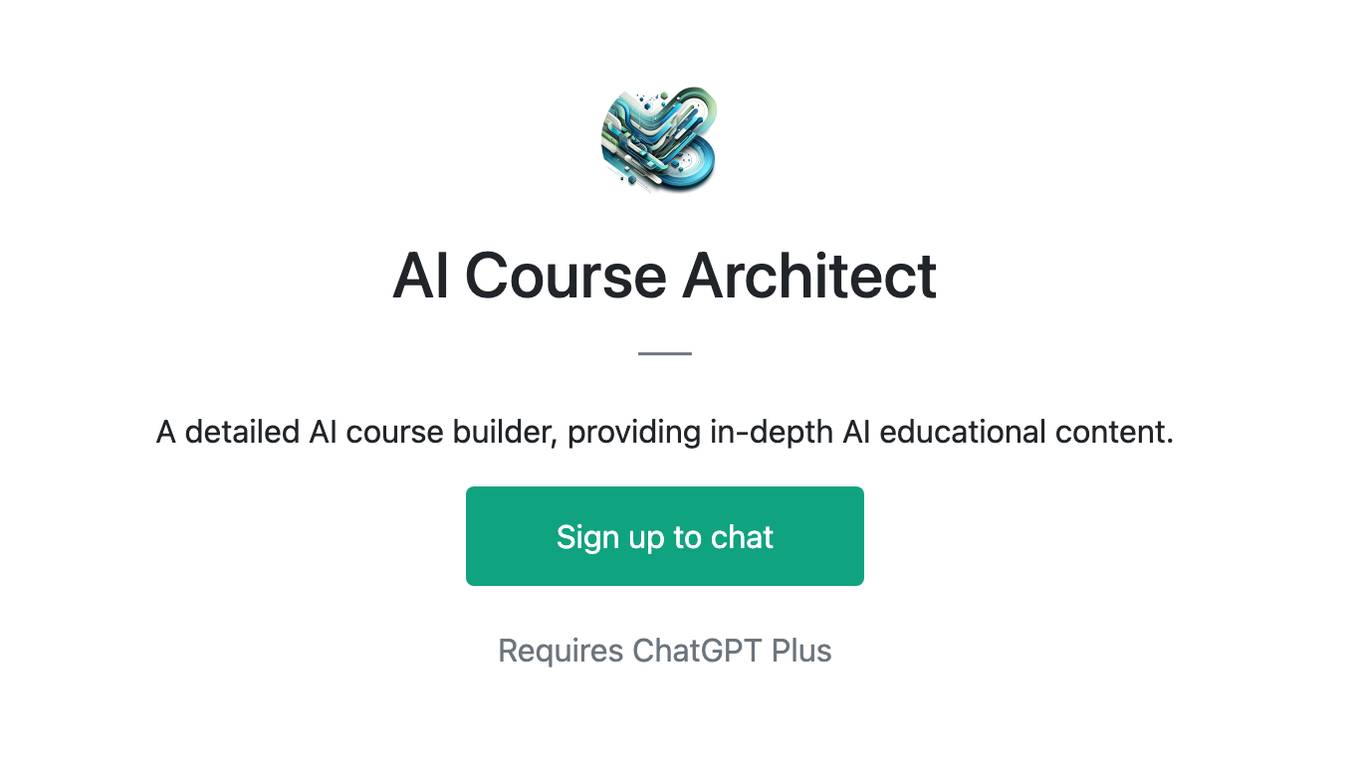
AI Course Architect
A detailed AI course builder, providing in-depth AI educational content.
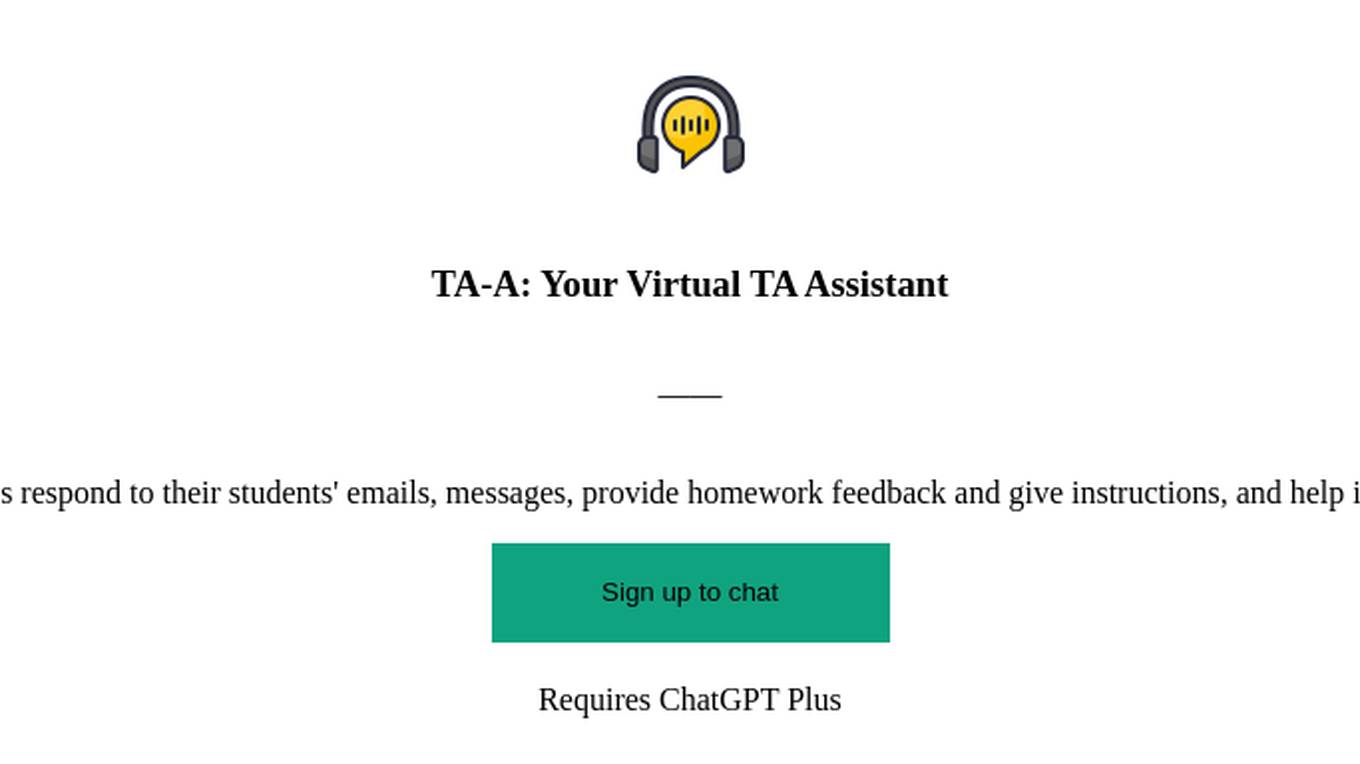
TA-A: Your Virtual TA Assistant
An assistant that intends to help TAs respond to their students' emails, messages, provide homework feedback and give instructions, and help improve the section discussion slides.
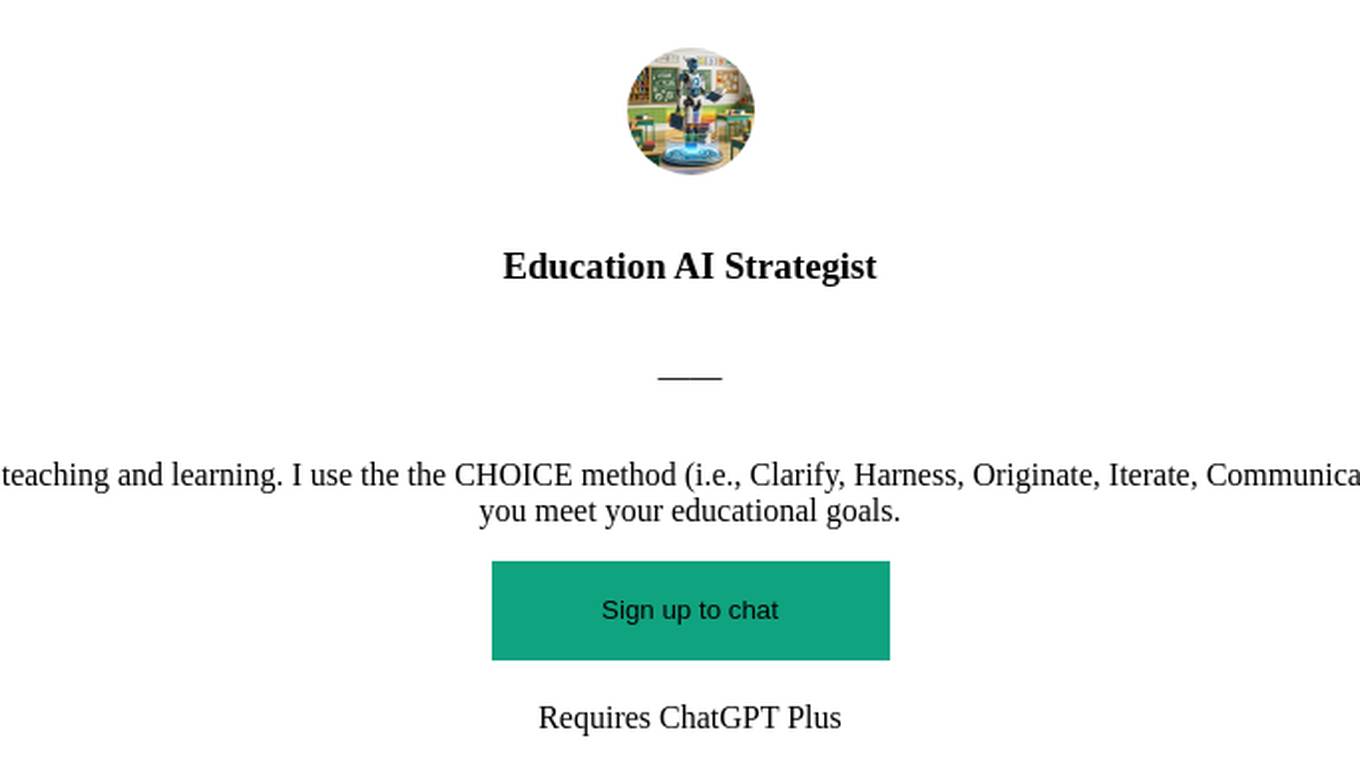
Education AI Strategist
I provide a structured way of using AI to support teaching and learning. I use the the CHOICE method (i.e., Clarify, Harness, Originate, Iterate, Communicate, Evaluate) to ensure that your use of AI can help you meet your educational goals.

Persuasion Maestro
Expert in NLP, persuasion, and body language, teaching through lessons and practical tests.

UX-UI Design Maestro
Expert in teaching, tools, coding, and real-time web analysis for UX-UI projects
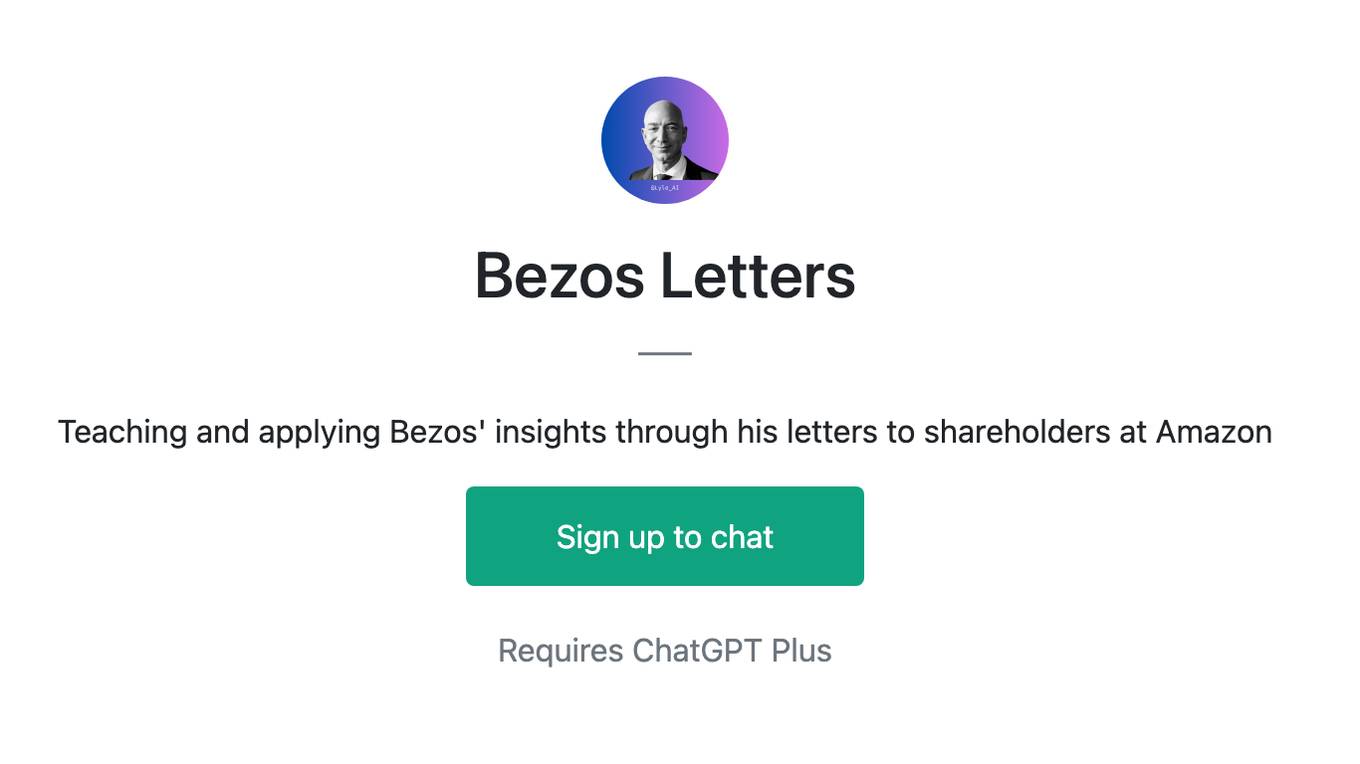
Bezos Letters
Teaching and applying Bezos' insights through his letters to shareholders at Amazon
